

 |
 |
Registration |
Search |
Tangible and intangible impact of information and communication in the digital age discussed in Khanty-Mansiysk 15.06.2018 The international conference “Tangible and Intangible Impact of Information and Communication in the Digital Age” was held within the X International IT Forum in Khanty-Mansiysk, Russian Federation, on June 4–8, 2018 in cooperation with and under the aegis of UNESCO.
It has become a first-ever event on this topic and a new significant contribution by Ugra and the whole Russia to the implementation of the Intergovernmental Information for All Programme (IFAP), UNESCO’s major programme in the field of communication and information.
The conference was aimed to contribute to balancing the pace of development in the field of information, communication and related technologies and the ability of science and the society to comprehend the changing reality and thus influence the vector and nature of progress.
The interdisciplinary conference brought together academicians and researchers from the fields of ICT and media, cybersecurity, social and political science, philosophy, linguistics, library services, museum and archival studies, as well as diplomatic officials, policy-makers, representatives of public authorities, NGOs, businesses and media from 40 countries (Argentina, Armenia, Azerbaijan, Benin, Botswana, Brazil, Bulgaria, Burkina Faso, China, Colombia, Dominican Republic, Ecuador, Egypt, France, Georgia, Ghana, Hungary, India, Italy, Jamaica, Japan, Kazakhstan, Kyrgyzstan, Latvia, Malaysia, Moldova, Norway, Palestine, the Philippines, Russia, Serbia, Slovenia, South African Republic, Spain, Sri Lanka, Switzerland, Syria, USA, Uzbekistan, and Zambia).
The event was organized by the Russian Committee of the UNESCO Information for All Programme and its working body, Interregional Library Cooperation Centre, in cooperation with the UNESCO Institute for Information Technologies in Education (IITE) and with the support of the Government of the Khanty-Mansi Autonomous Okrug – Ugra and the Commission of the Russian Federation for UNESCO. Conference activities included plenary sessions:
a themed discussion “Media and Information Literacy” and two sections: “Culture and Languages in the Digital Age” and “Access to Information: Right and Equity”.
A special seminar “Digital Preservation Challenges” was organized as a satellite event.
Participants to the conference argued on the problems, phenomena and trends of the technological expansion in the information and communication field – both those that have come into focus in the last decade and those that are less evident today, but might significantly impact the socio-cultural landscape in the nearest future.
The Conference considered modern socio-cultural processes accompanied by the widespread introduction of digital technologies and the digitisation of various spheres of life from the humanistic perspective of the UNESCO Information for All Programme, sharing the commitment to the principles of social justice, inclusion and non-discrimination, balance of rights, opportunities and responsibilities, and disclaiming the narrowly utilitarian approach and economism, with a view to taking into account the whole variety of aspects of human life.
Experts noted that due to the high rate of changes the society did not have time to interpret and thoroughly understand them, nor to respond progressively. Most studies focus on the receding reality; those trying to describe and analyse the current state-of-the-art and to forecast possible development lines and their consequences follow out-of-date models and approaches.
At the same time, experts and the general public reached a relative consensus on the socio-cultural challenges coming into particular prominence: · oversupply of information, resulting in its devaluation and loss of trust to professional media; · pervasive communications accompanied by ever more sophisticated communicative technologies; · people gradually getting excluded from generating meanings and values and turning into functional supplements to communication flows; · traditional cultural regulators of social relations and processes being displaced by automated social algorithms; · blurring the borders between the real and the digital world, wide spread of simplified virtual mockups and simulacra; · post-truth in its heyday, with public perception shaped more by means of addressing feelings and personal opinion rather than operating real facts, with fakes, clickbaits, hypes and other tools introduced to form post-reality in the political and media culture.
Participants repeatedly noted that while the convergence of digital, physical and biological environment was gaining momentum, traditional pre-digital interaction and management models were still used thus causing a wider range of problems, in particular those considering ethical and legal issues.
In this context, the promotion of competencies (skills, knowledge and attitudes) incorporated in the term “media and information literacy” and providing a safe and responsible critical use of networks and digital services, is gaining great importance. The need for such competencies is becoming ever more urgent.
Evgeny Kuzmin, Vice-Chair of the IFAP Intergovernmental Council, Chair of the UNESCO IFAP Working Group for Multilingualism in Cyberspace, Chair of the Russian IFAP Committee, President of the Interregional Library Cooperation Centre, started off the event.
Ugra Deputy Governor Alexei Shipilov welcomed the participants at the Conference Opening Gala.
Greetings to the conference organizers and participants were received from: UNESCO Assistant Director-General for Communication and Information Moez Chakchouk, IFLA President Glòria Pérez-Salmerón and IFLA Secretary General Gerald Leitner, Executive Secretary of the Russian Federation Commission for UNESCO Grigory Ordzhonikidze, UNESCO IITE Director Tao Zhan.
The meeting’s professional programme included about 50 reports.
Plenary sessions, themed discussions and sections were moderated by Evgeny Kuzmin, Tatiana Murovana (UNESCO), Gilvan Oliveira (Brazil), Alfredo Ronchi (Italy), Rao Prabhakar Jandhyala (India), Daniel Pimienta (Dominican Republic), Dorothy Gordon (Ghana), Mohamed El Guindy (Egypt), Maria Carme Torras Calvo (Norway), Irina Zhilavskaya and Yury Chiorny (Russia).
The closing plenary was focused on discussing the draft final document. The following recommendations were elaborated: · UNESCO Member States, relevant intergovernmental and public organizations, UN agencies and other stakeholders should reach a consensus on the preparation of a global report on sociocultural transformations accompanied and influenced by the penetration of digital technologies, with the aim of envisaging and monitoring further changes and directions of development. · All stakeholders, specifically governments, academics and experts from the scientific and educational community, should in every way contribute to the elaboration of educational and learning programmes, especially for young people, concerning the ethical, legal, cultural and social aspects of living in a world saturated by digital communication and media. Such programmes should promote the empowerment and raise their competency of citizens, in particular through increasing the level of media and information literacy.
An international Working Group created to finalize the draft document includes: Evgeny Kuzmin and Vladimir Opredelyonov (Russia), Tatiana Murovana (UNESCO), Gilvan Oliveira (Brasil), Dorothy Gordon (Ghana), Nestor Ruiz (Colombia), Alfredo Ronchi (Italy), Daniel Pimienta (Dominican Republic), Mohamed El Guindy (Egypt), Maria Carme Torras Calvo (Norway), Pal Tamas (Hungary).
Conference participants also enjoyed a rich cultural programme, which included visits to the Ob-Ugric Institute of Applied Research and Development, Ugra State Library, Art Gallery and Museum of Nature and Man, as well as a concert by Russian singer Diana Garipova.
The participants also received a set of information and analytical materials in Russian and English on the humanitarian issues of information society for the period from 2002. These publications by the Russian IFAP Committee and the Interregional Library Cooperation Centre formed the basis of the book exhibition opened during the meeting. The reports presented at the meeting and the final document will be published later.
*** The international conference “Tangible and Intangible Impact of Information and Communication in the Digital Age” has become a key event of the X International IT Forum in Khanty-Mansiysk.
Evgeny Kuzmin, Member of the IT Forum’s Organising Committee and Co-Chair of the Conference Organising Committee, spoke on the conference objectives at the Forum’s Opening Gala and presented its outcomes at the Forum’s Closing Plenary.
The impressive list of participants to the meeting and their enthusiastic feedback indicated the world’s growing interest to the problems raised within the UNESCO IFAP framework, and to the initiatives of Ugra and the whole Russia in the field of communication and information.
The conference is the fifth major forum on the humanitarian issues of information society organized by the Ugra Government in cooperation with the Russian IFAP Committee and the Interregional Library Cooperation Centre. Four previous events are:
Opening of the 10th IT Forum
Hall
KHRAMOV Oleg, Deputy Secretary of the Security Council of the Russian Federation, KOMAROVA Natalia, Ugra Governor, NOSKOV Konstantin, Minister of Digital Development, Communications and Mass Media of Russia
KUZMIN Evgeny, Vice-Chairman, Intergovernmental Council of the UNESCO Information for All Programme (IFAP); Chairman, IFAP Working Group for Multilingualism in Cyberspace; Chairman, Russian IFAP Committee; President, Interregional Library Cooperation Centre (Moscow, Russia)
Participants of The international conference “Tangible and Intangible Impact of Information and Communication in the Digital Age”
BEZNOSOVA Irina, Acting Director, Department for Foreign and External Relations of the Khanty-Mansi Autonomous Okrug – Ugra, SHIPILOV Alexei, First Deputy Governor of the Khanty-Mansi Autonomous Okrug – Ugra (Khanty-Mansiysk, Russia)
KUZMIN Evgeny, SHIPILOV Alexei
HIRONAKA Jo, Programme Specialist, Knowledge Societies Division, Communication and Information Sector, UNESCO (Paris, UNESCO)
MUROVANA Tatyana, Programme Specialist, UNESCO Institute for Information Technologies in Education (Moscow, UNESCO)
BUYAKEVICH Maxim, Head of Unit, Information and Press Department, Ministry of Foreign Affairs of the Russian Federation (Moscow, Russia)
TORRAS CALVO Maria Carmen, Library Director, University of Bergen; former Governing Board Member, IFLA (International Federation of Library Associations and Institutions) (Bergen, Norway)
RONCHI Alfredo, Secretary, EC MEDICI Framework; Professor, Politecnico di Milano (Milan, Italy)
JANDHYALA Prabhakar Rao, Professor, University of Hyderabad (Hyderabad, India)
MIROSHNIKOV Boris, Vice-President, Citadel Group of Companies (Moscow, Russia)
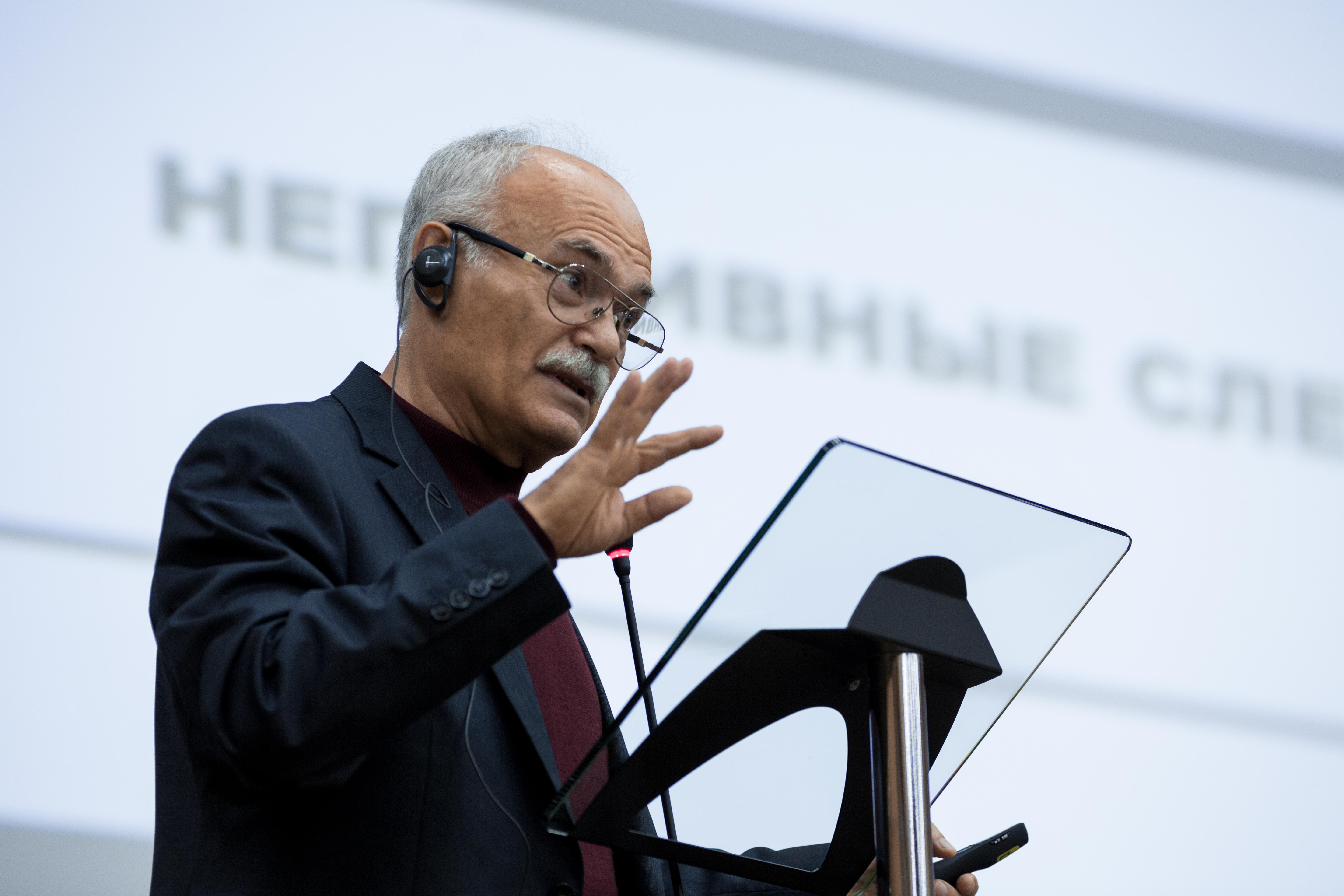 DZYALOSHINSKY Iosif, Professor, Faculty of Communications, Media and Design, School of Media, National Research University Higher School of Economics; Deputy Chairman, Russian Committee of the UNESCO Information for All Programme (Moscow, Russia)
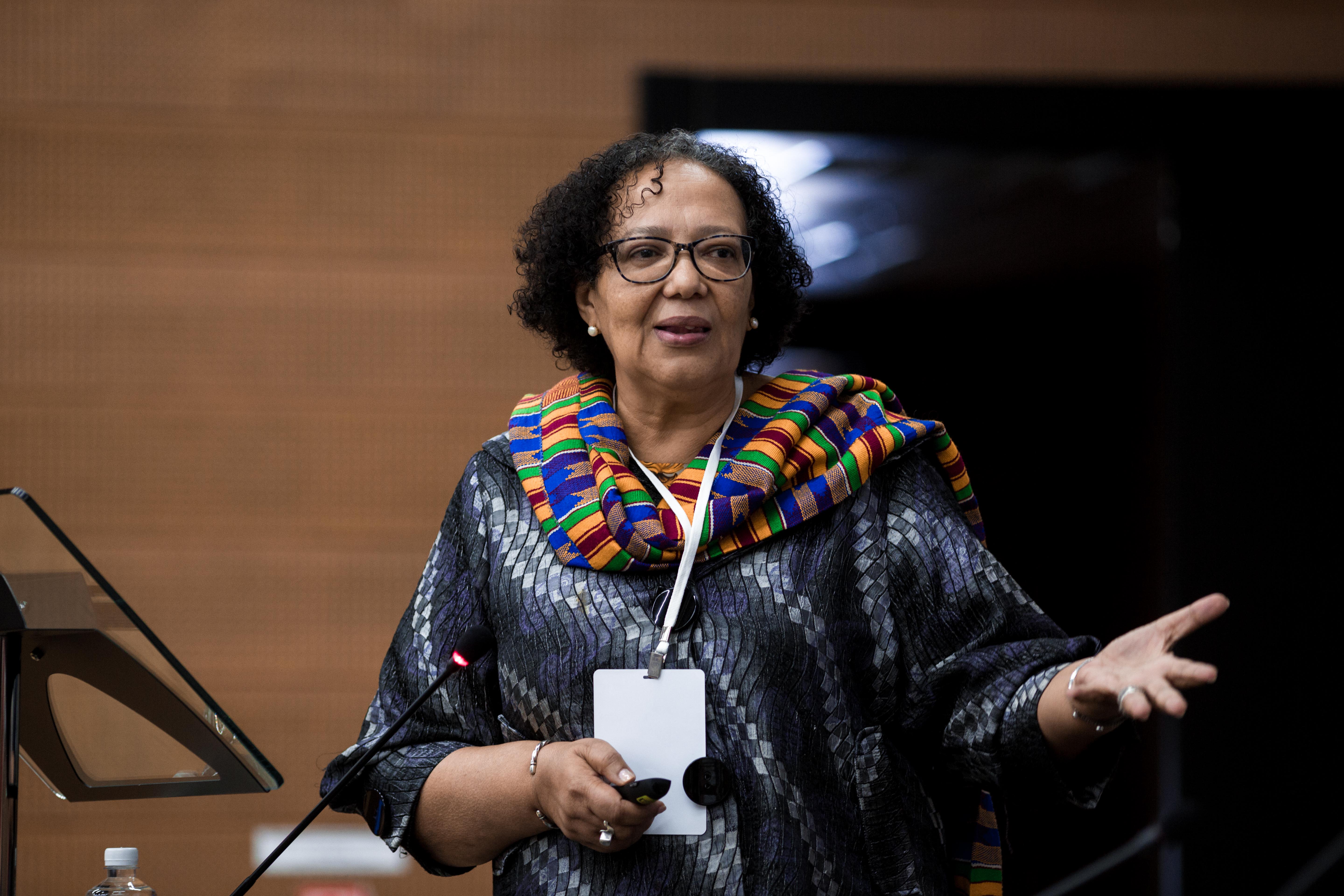 GORDON Dorothy, Chair, UNESCO IFAP Working Group for Information Literacy; Member, UNESCO IFAP Bureau (Accra, Ghana)
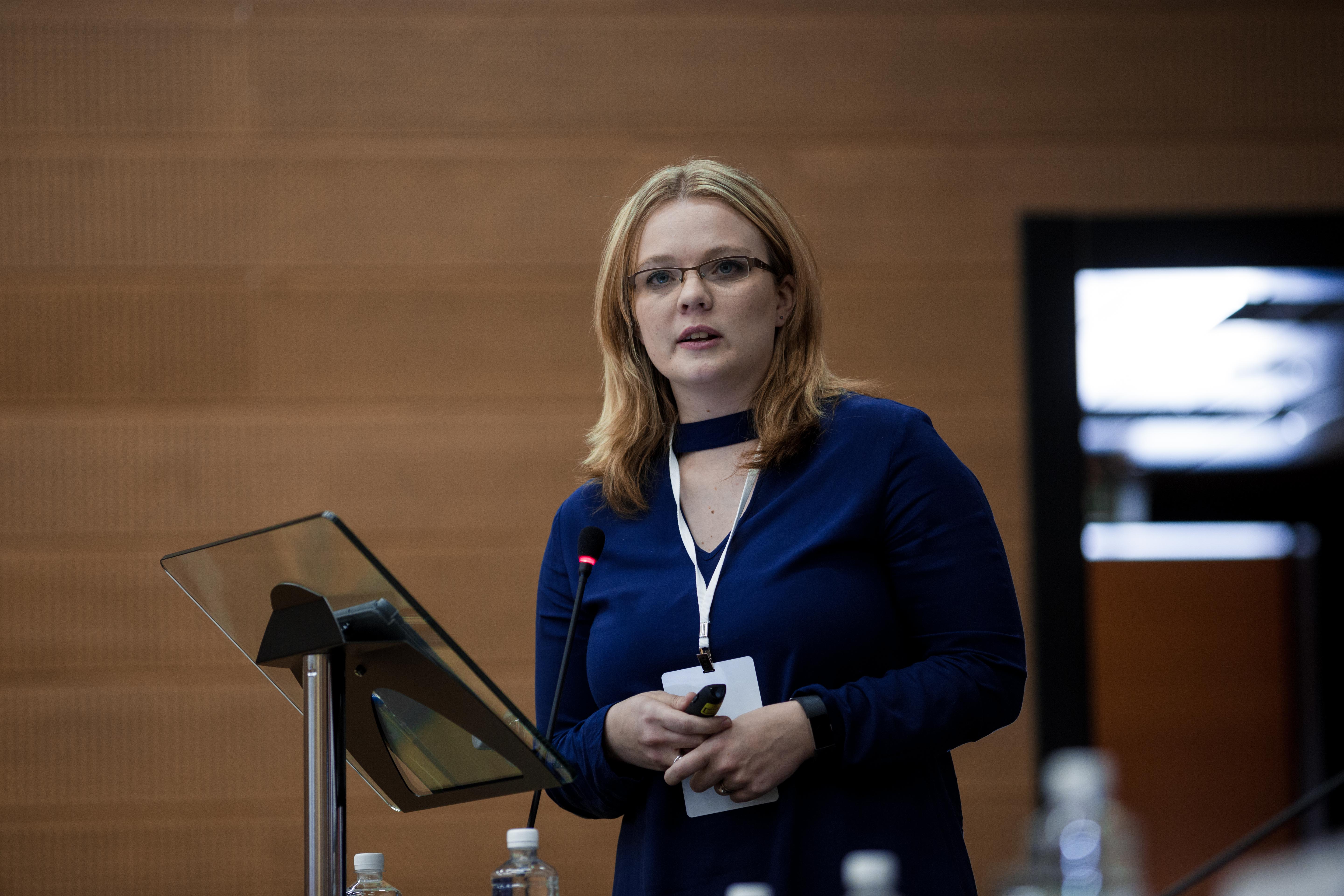 KLAZAR Erin, Head of Research and Analysis, OUTA; Consultant, African Centre of Excellence for Information Ethics (Pretoria, South Africa)
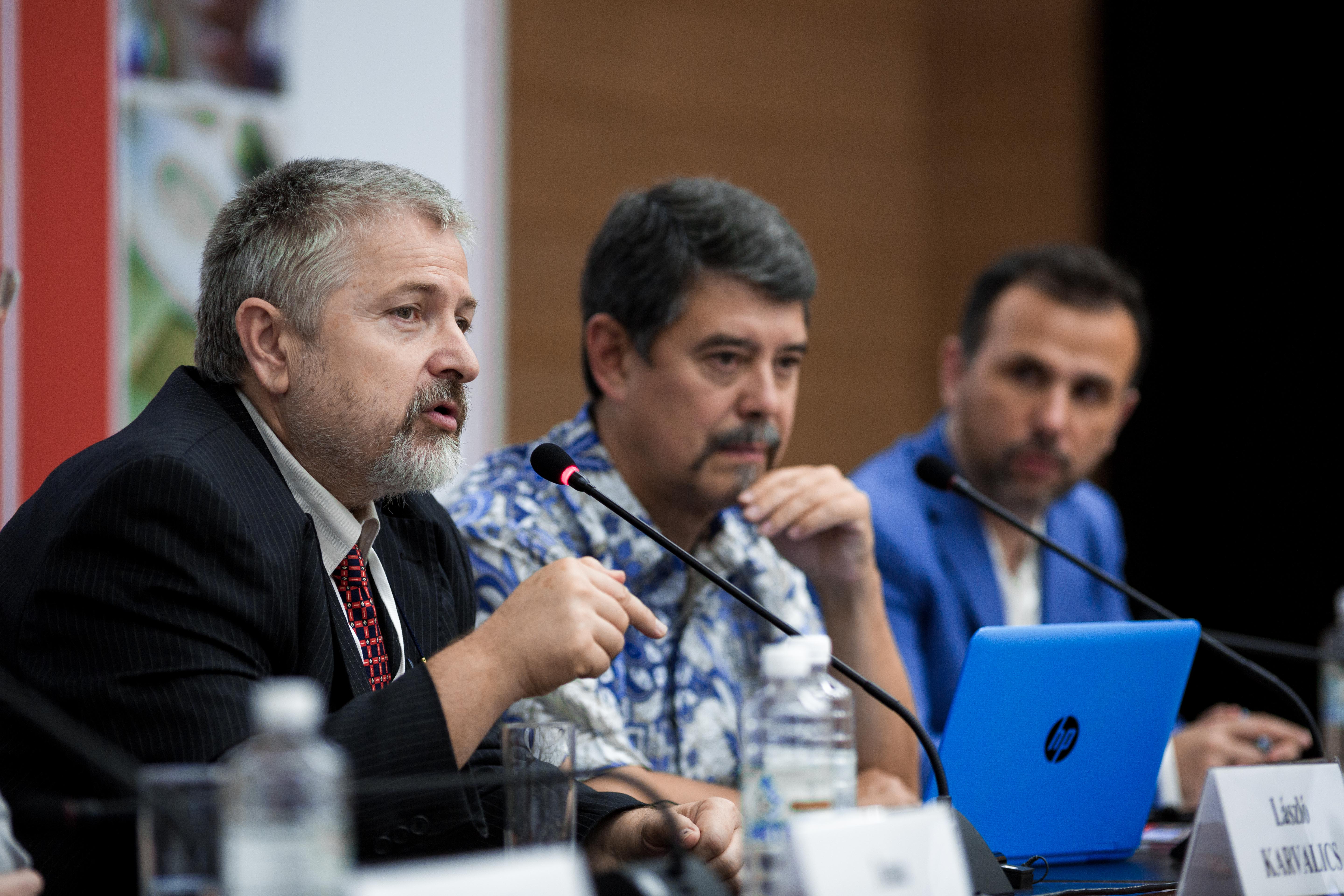 KARVALICS László, Associate Professor, University of Szeged; Chairman, Hungarian Committee for the UNESCO Information for All Programme (Budapest, Hungary)
 Section work
 PIMIENTA Daniel, International Consultant (Santo Domingo, Dominican Republic)
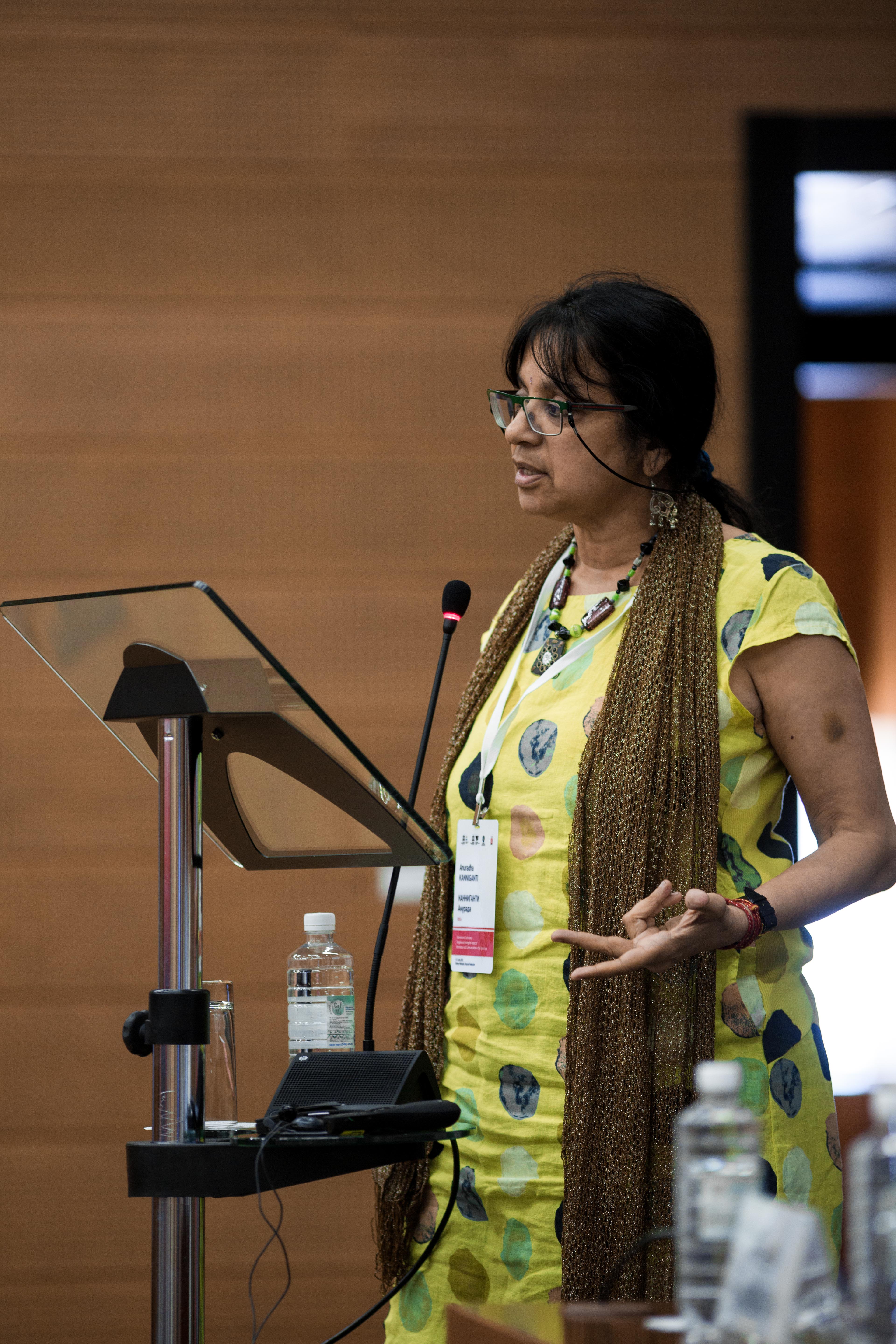 KANNIGANTI Anuradha, Lecturer, National Institute of Oriental Languages and Civilisations in Paris (Hyderabad, India) 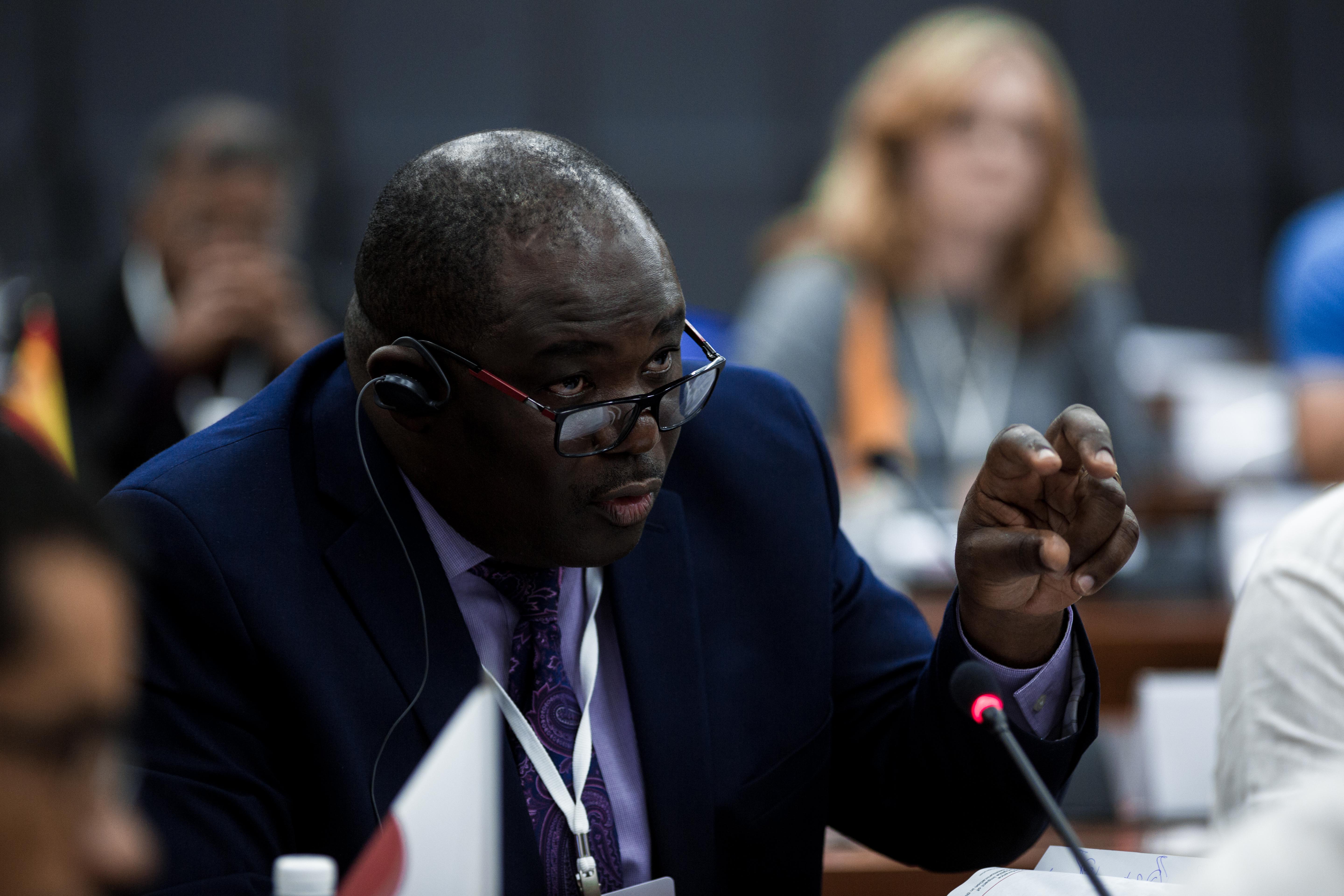 GREEN Cordel Oral, Executive Director, National Broadcasting Commission (Kingston, Jamaica)
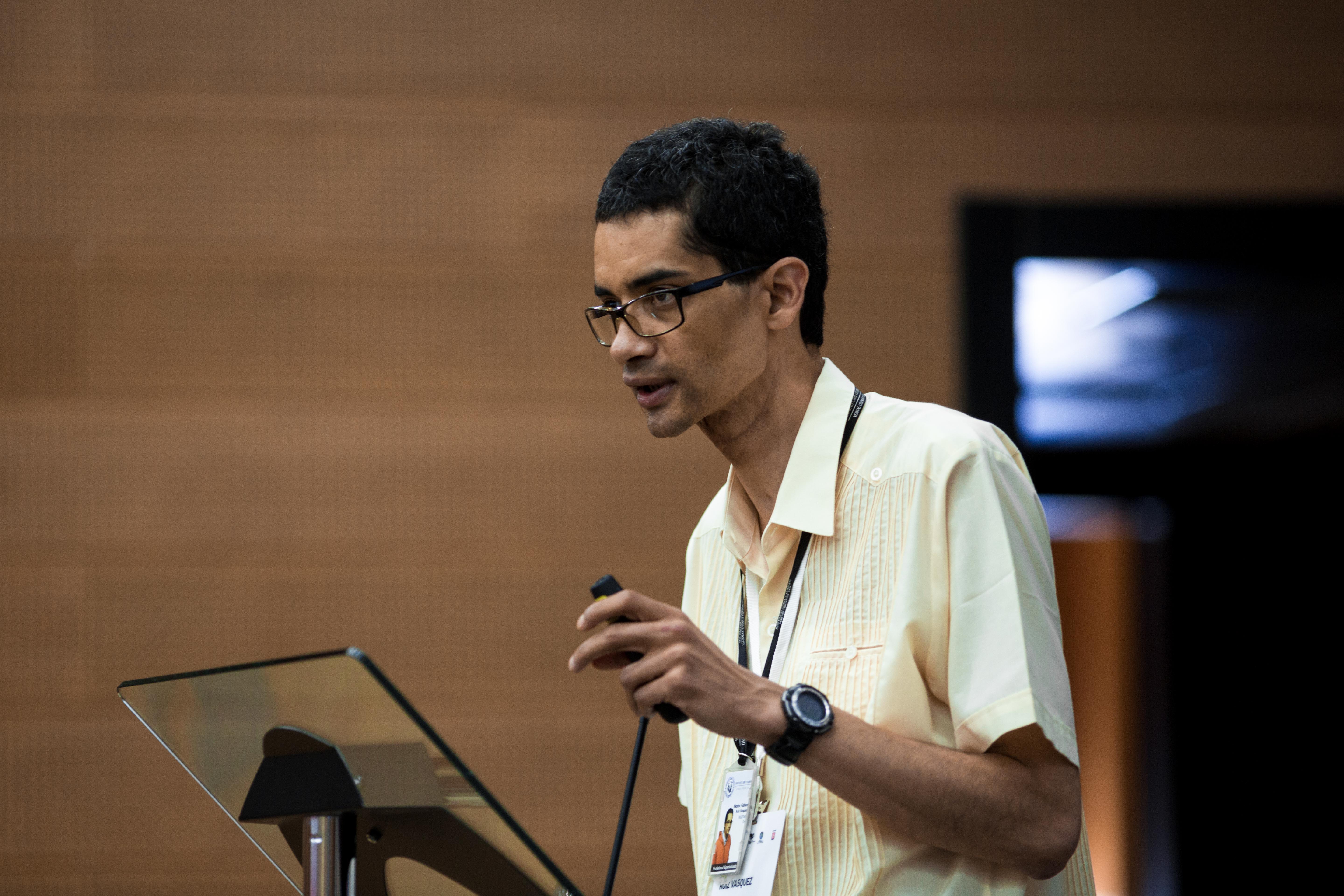 RUIZ VASQUEZ Nestor, Researcher and Lecturer, Instituto Caro y Cuervo (Bogotá, Colombia) 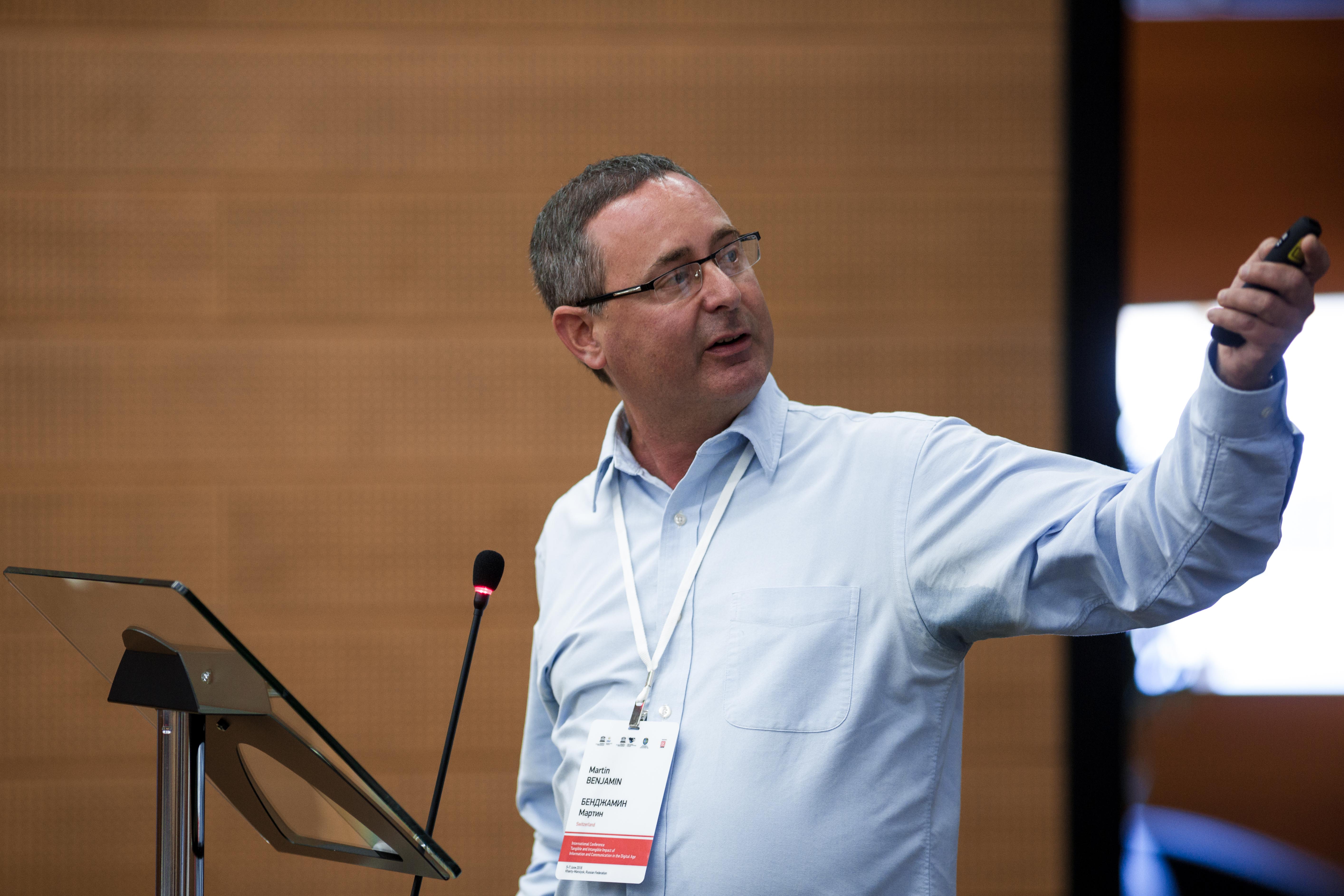 BENJAMIN Martin, Executive Director, Kamusi Project International, Ecole Polytechnique Federale de Lausanne (Lausanne, Switzerland)
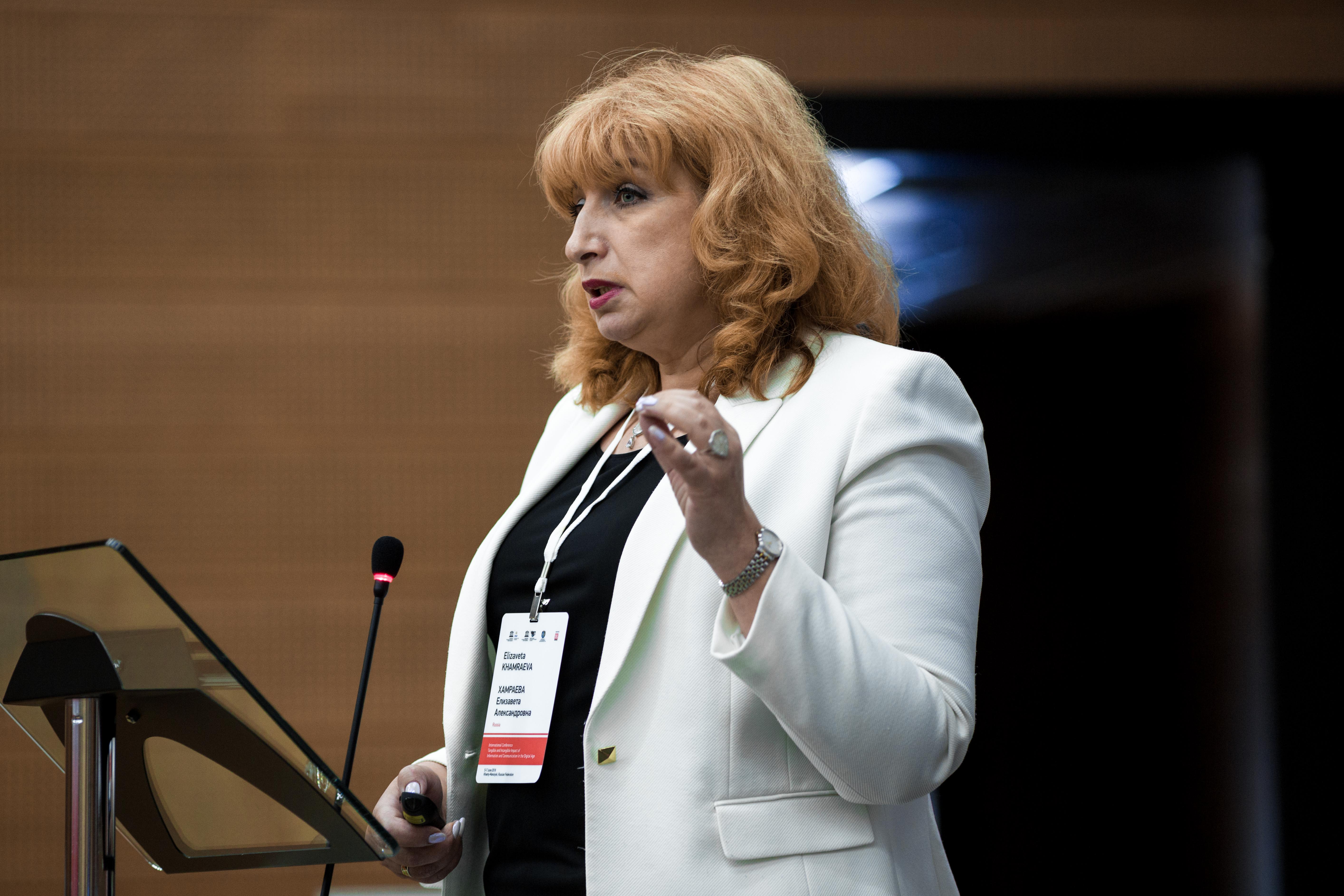 KHAMRAEVA Elizaveta, Head, Russian as a Foreign Language Department, Moscow State Pedagogical University (Moscow, Russia)
ZOTOV Pavel, Advisor to Director General, ITAR TASS; Executive Director, Russian Book Chamber (Moscow, Russia)
JANDHYALA Prabhakar Rao, TAMAS Pal, Professor, Hungarian Academy of Sciences (Budapest, Hungary)
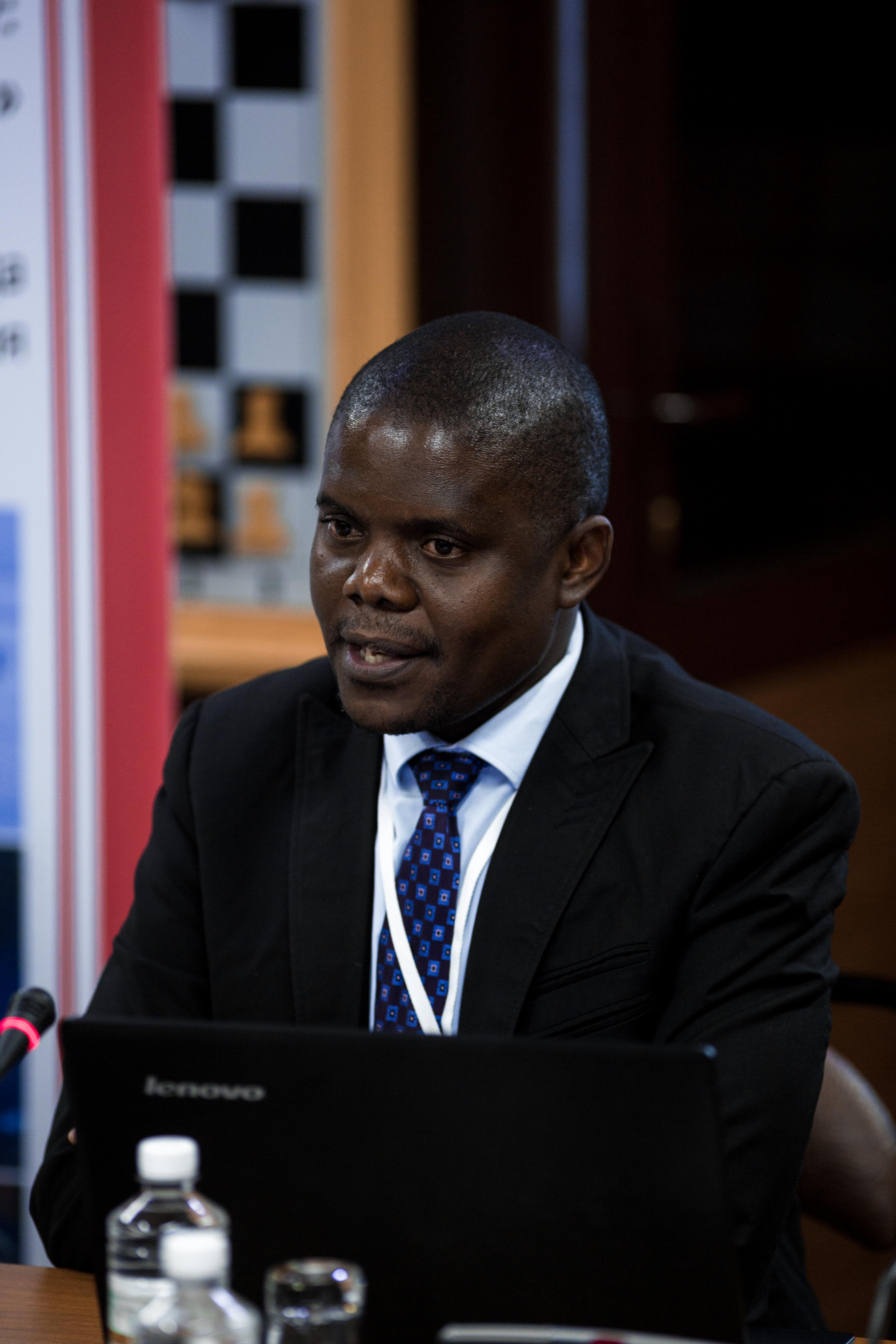 SIKAZWE Daniel, Executive Secretary, PEN Zambia (Lusaka, Zambia)
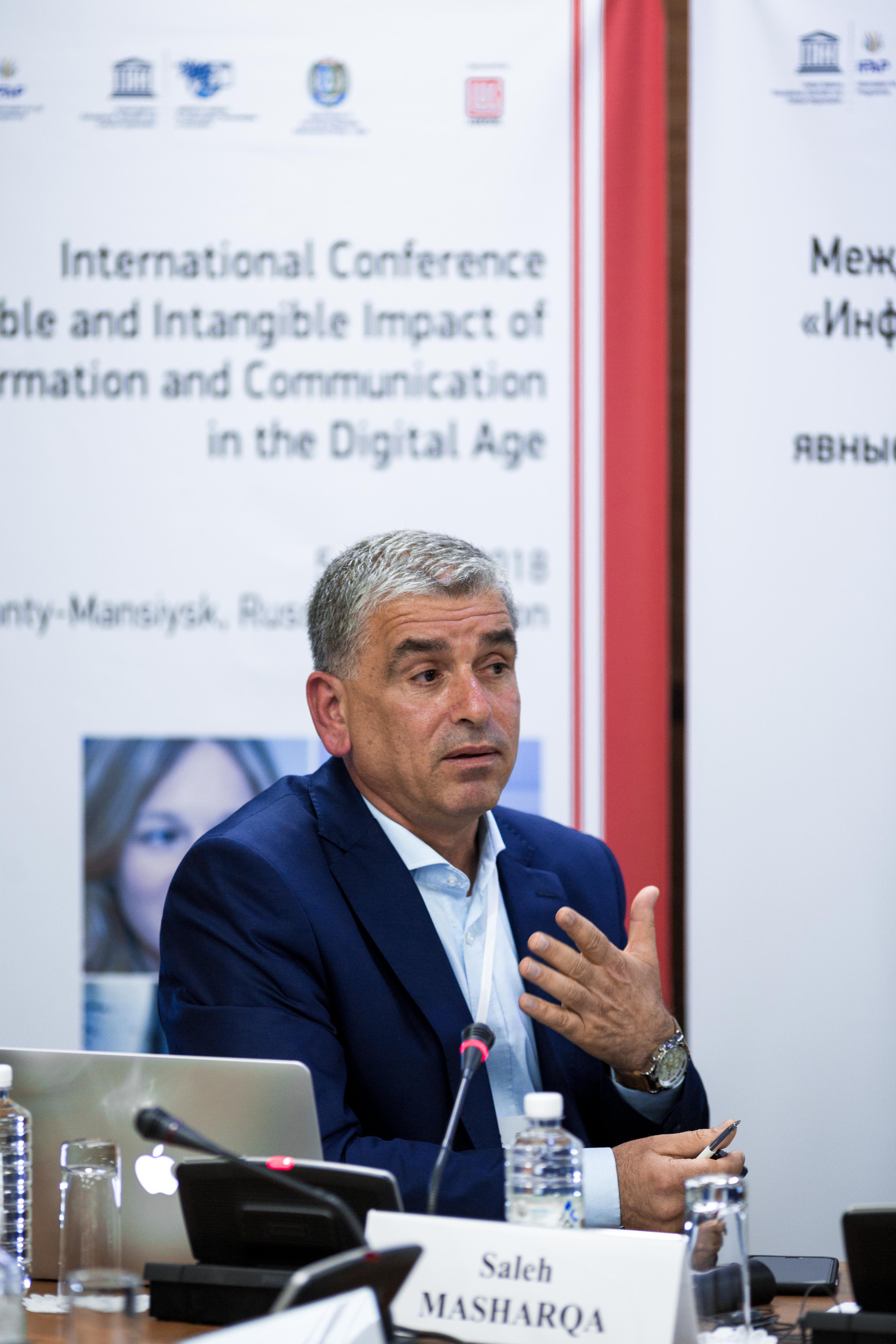 MASHARQA Saleh, Lecturer and Media Trainer, Birzeit University (Ramallah, Palestine)
NANDASARA Turrance, Senior Lecturer/Coordinator, School of Computing, University of Colombo (Colombo, Sri Lanka), Erin Klazar 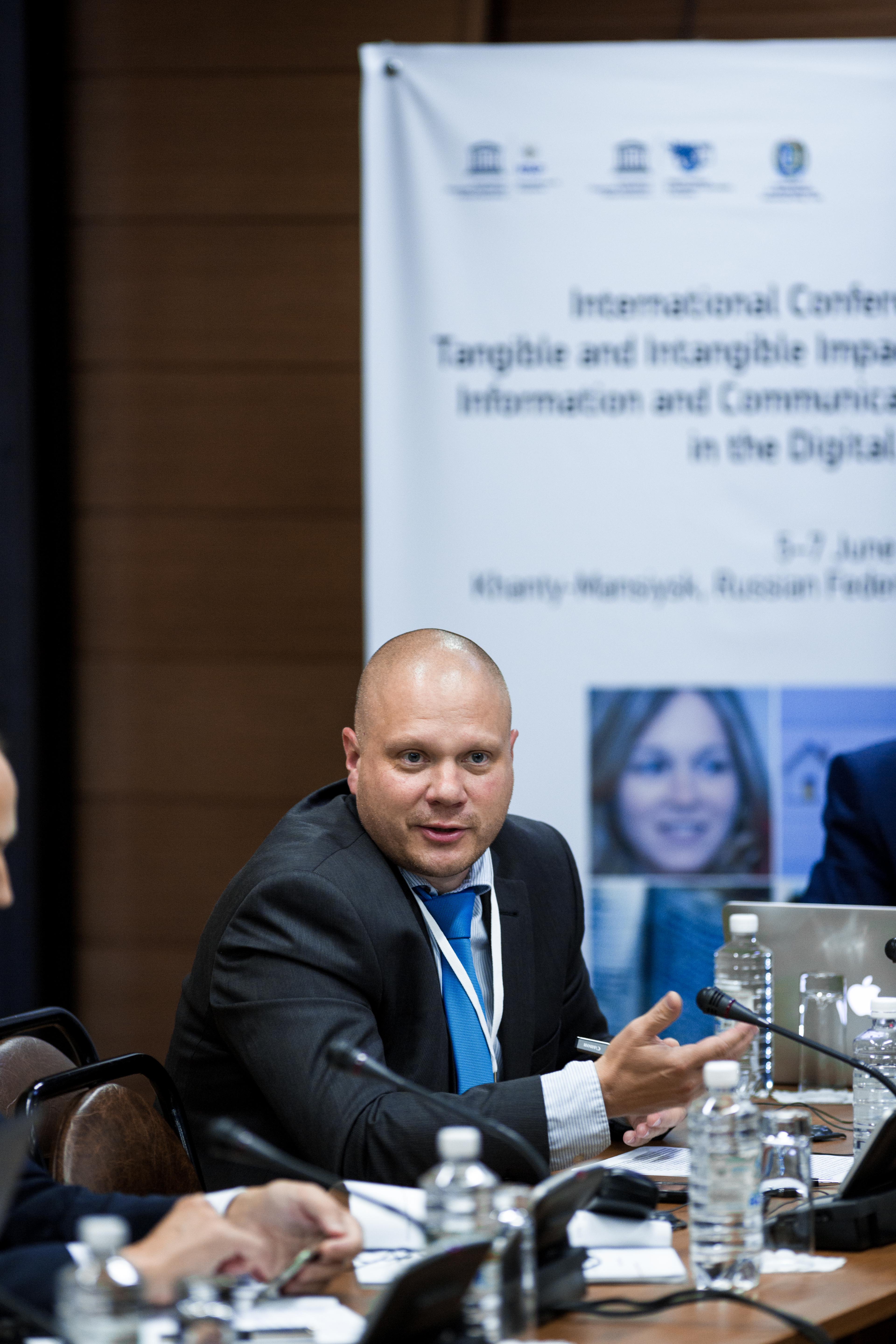 GONCHAROV Vyacheslav, Executive Director, Association of Public Libraries of Kyrgyzstan; Director, Door Media Public Foundation (Bishkek, Kyrgyzstan)
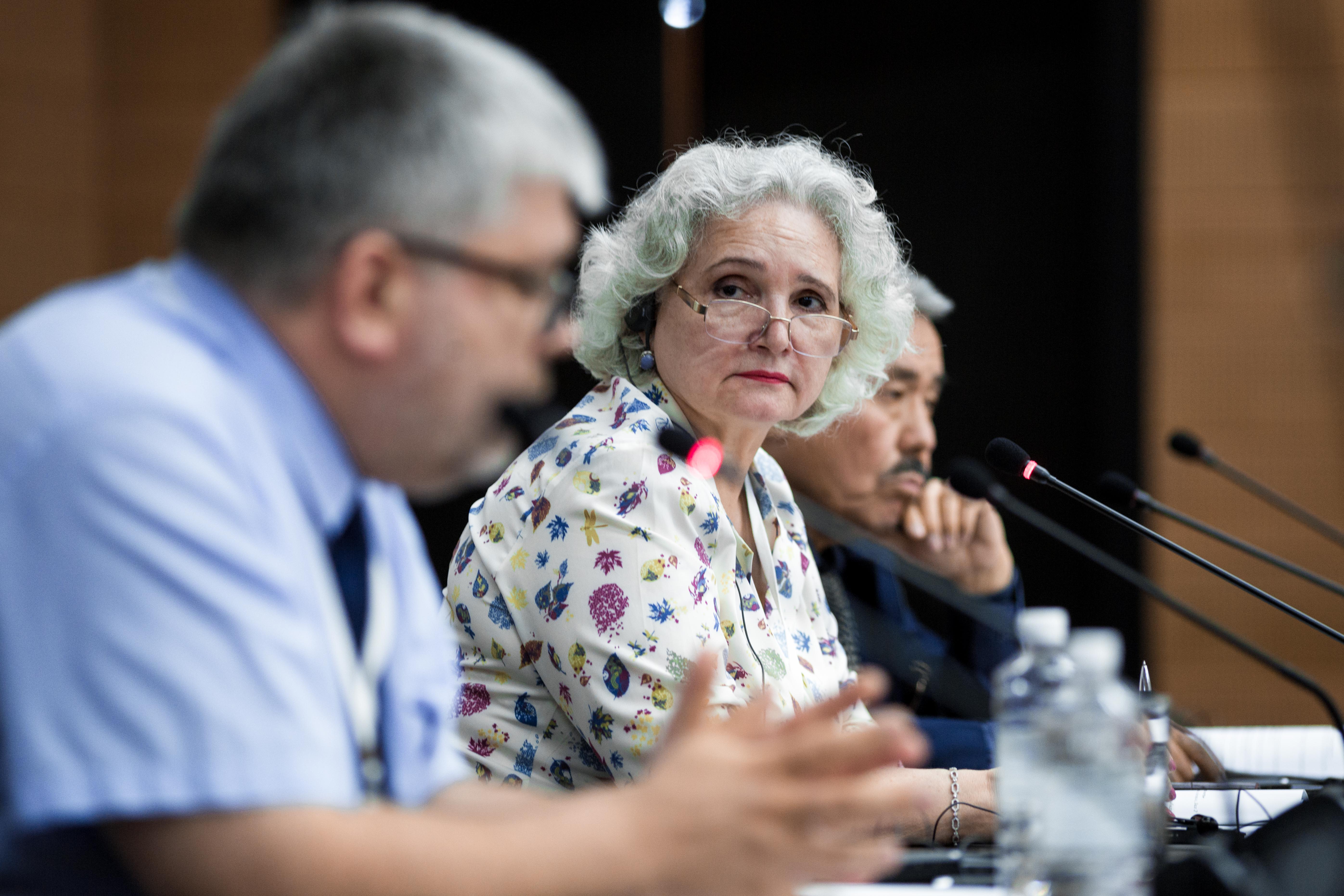 ZHILAVSKAYA Irina, Head, UNESCO Chair on Media and Information Literacy and Media Education of Citizens, Moscow State Pedagogical University (Moscow, Russia)
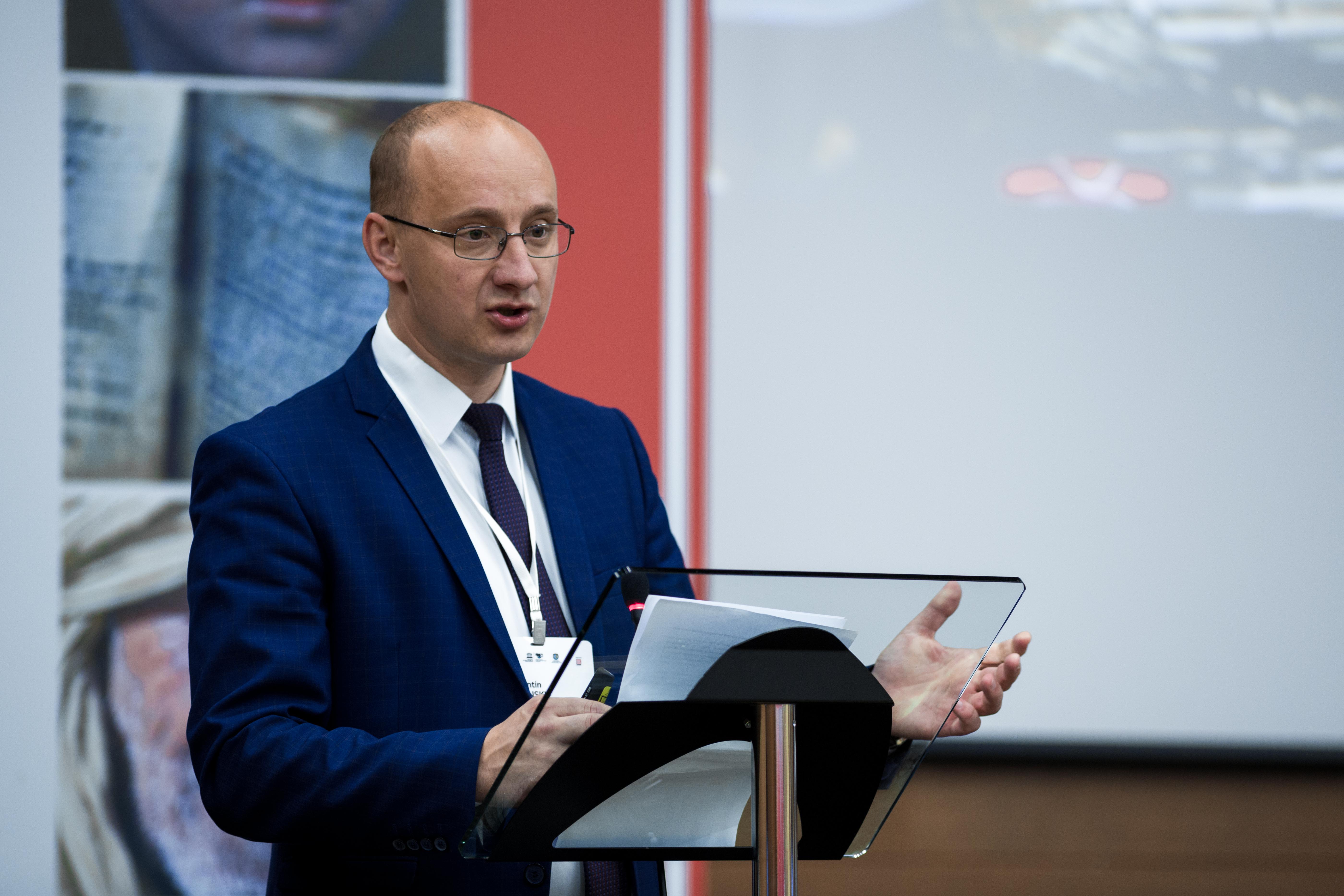 KURGANSKY Konstantin, Deputy Head, Division of Internal and Recruitment Policy – Head, Department of Culture of the Belgorod Region (Belgorod, Russia)
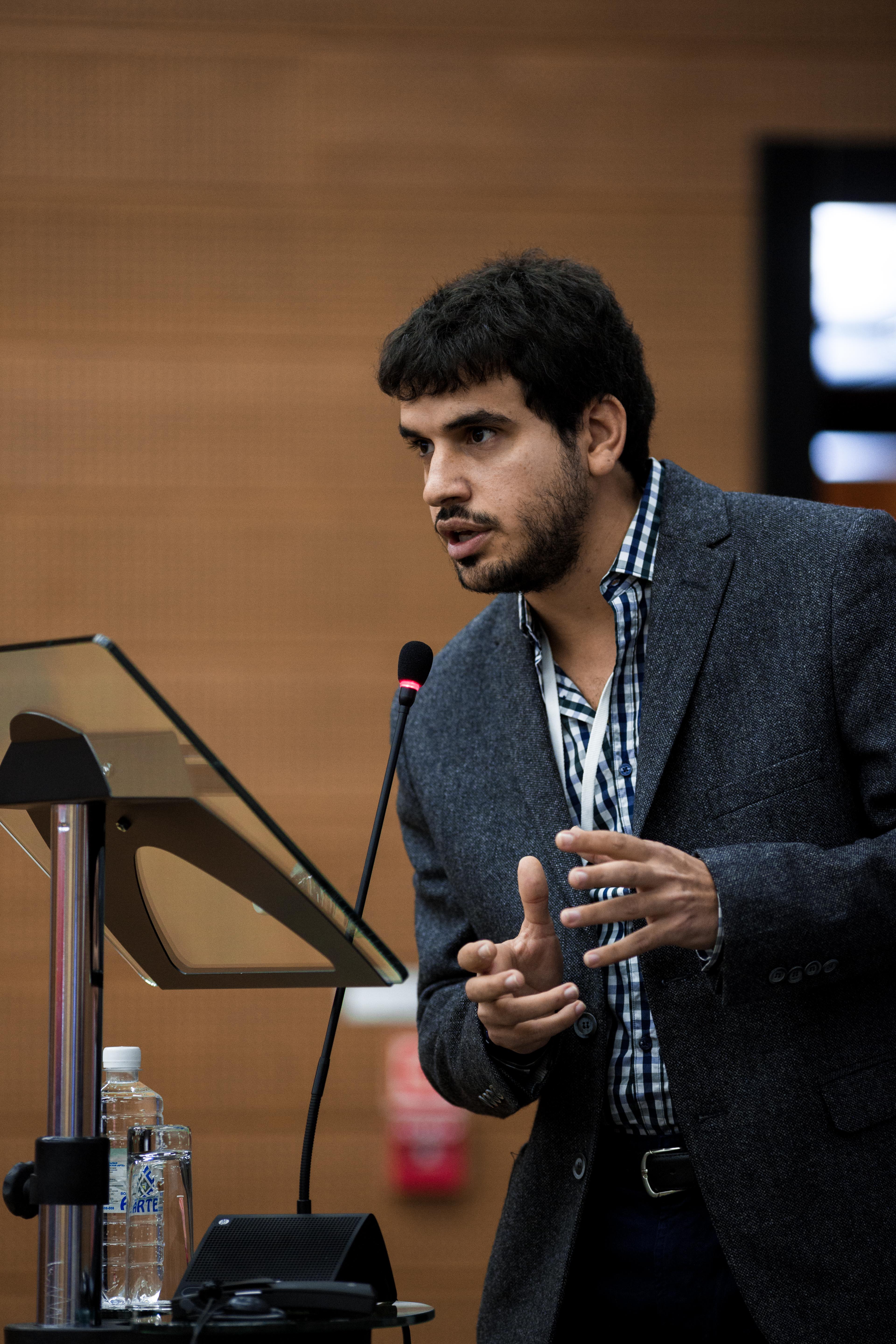 FELDMAN Patricio, Researcher, Gino Germani Research Institute, Faculty of Social Sciences, University of Buenos Aires; National Council of Scientific and Technical Research (CONICET) (Buenos Aires, Argentina)
 ELGUINDY Mohamed, KLAZAR Erin, BEBEKH Vladimir, Director, Astra Media Communications Agency; Publisher (Surgut, Russia) MÜLLER DE OLIVEIRA Gilvan, Associate Professor, Federal University of Santa Catarina; Acting Executive Secretary, MAAYA World Network for Linguistic Diversity; General Coordinator, UNESCO Chair on Language Policies for Multilingualism (Florianópolis, Brazil)
ZAKARADZE Ekaterina, PhD Student, Georgian Technical University; Manager, Research Institute of Public Administration, and TSATSANASHVILI Mariam, Director, Research Institute of Public Administration, Georgian Technical University (Tbilisi, Georgia)
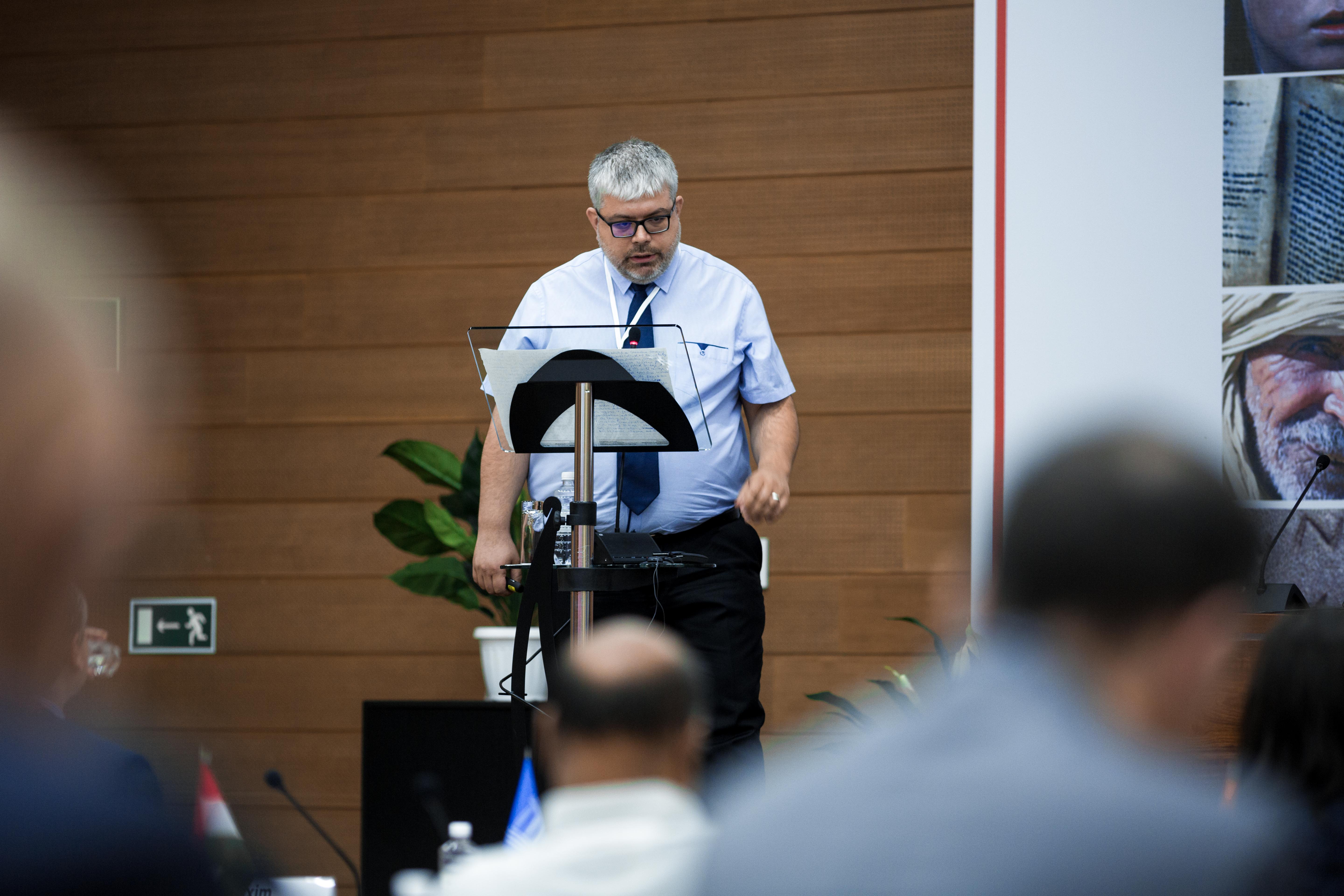 KONSTANTINOV Oleg, Chief Assistant Professor, University of Library Studies and Information Technologies (Sofia, Bulgaria)
KOSINTSEVA Elena, Deputy Director for Science, Ob-Ugric Institute of Applied Research and Development, SPODINA Viktoria, Director, Ob-Ugric Institute of Applied Research and Development (Khanty-Mansiysk, Russia)
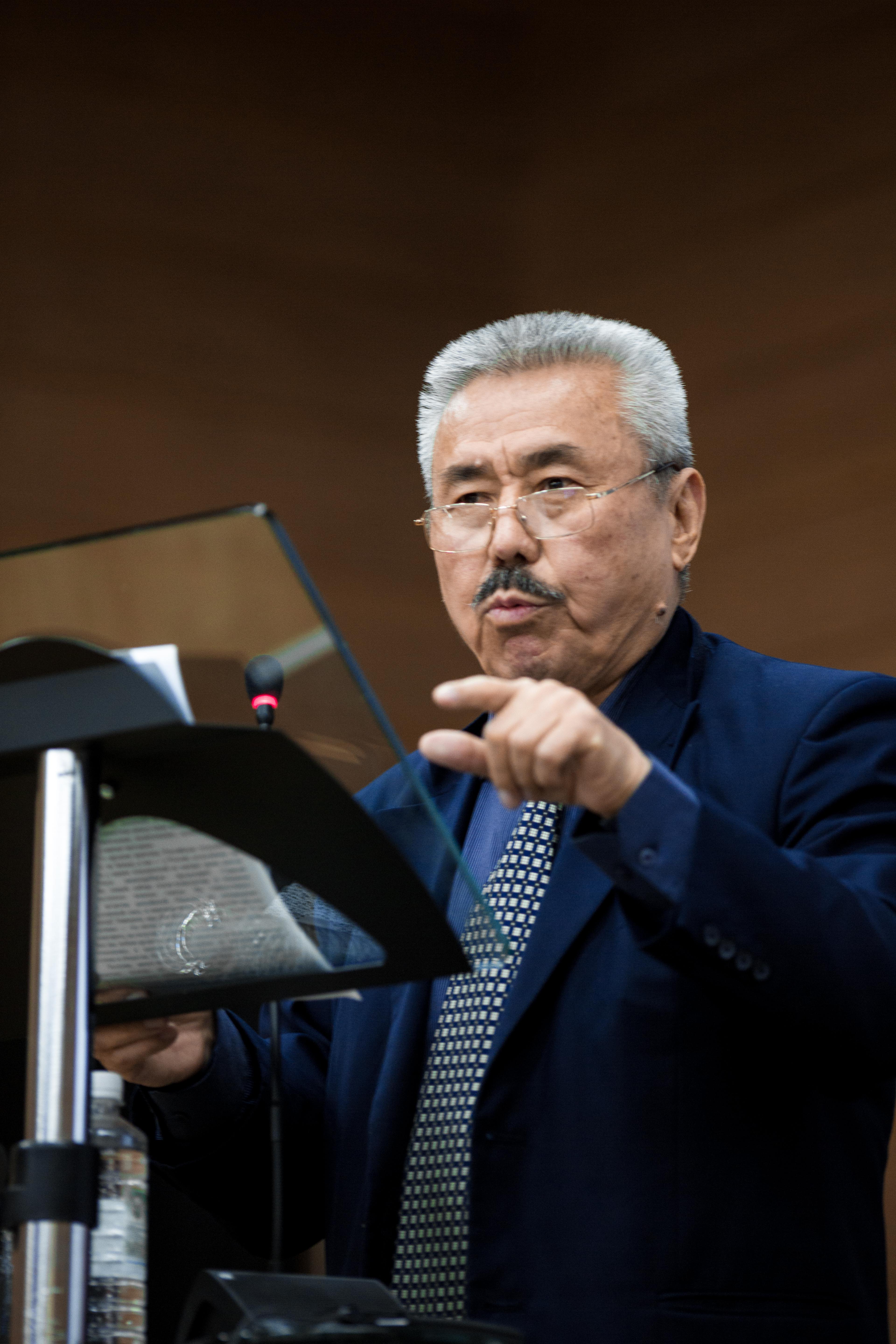 KUTTYKADAM Seidahmet, Professor, UNESCO Chair for Ethnic and Religious Tolerance, Lev Gumilyov Eurasian National University (Astana, Kazakhstan) 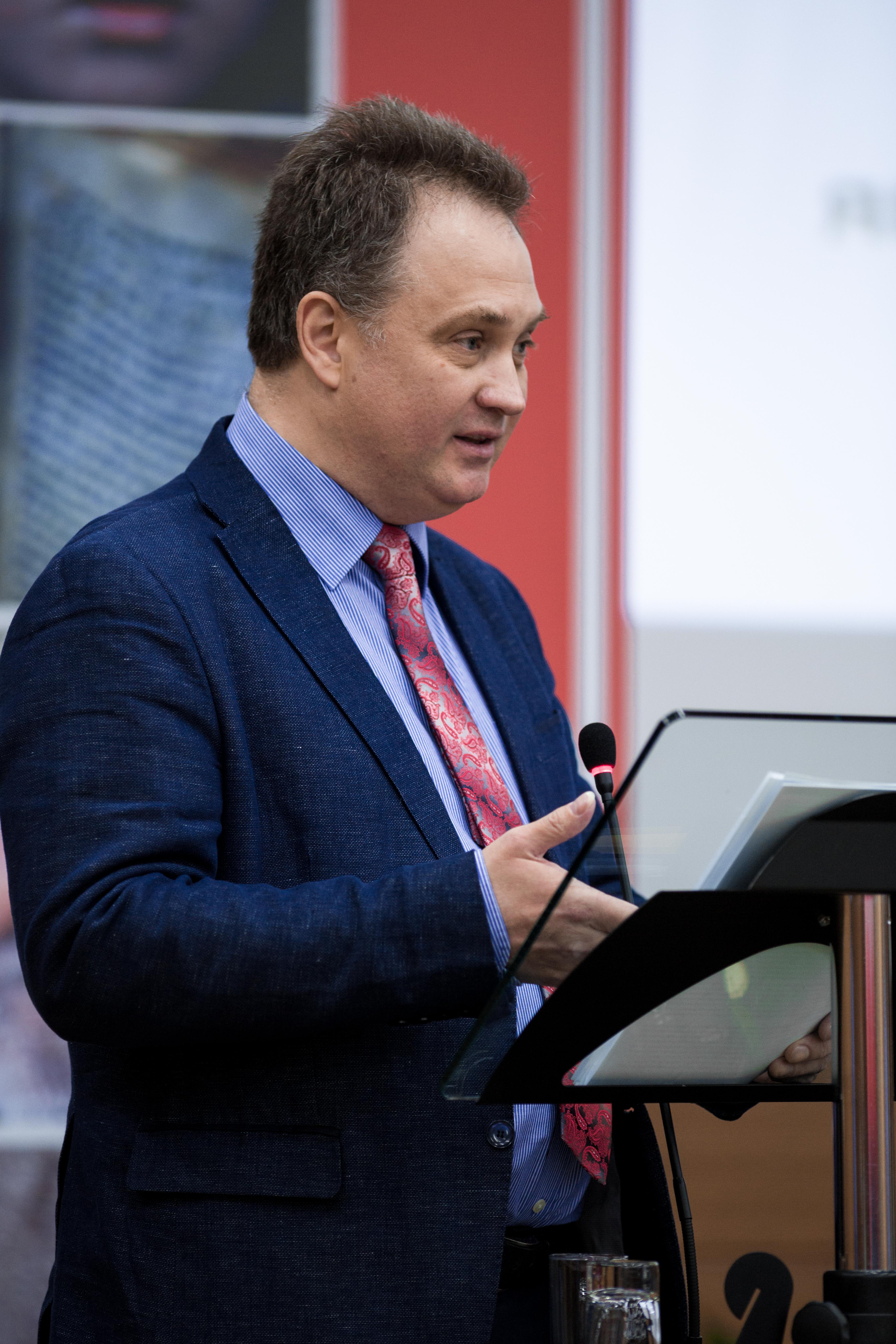 CHIORNY Yury, Head, Centre for Informatics Problems, Institute of Scientific Information for Social Sciences, Russian Academy of Sciences (Moscow, Russia)
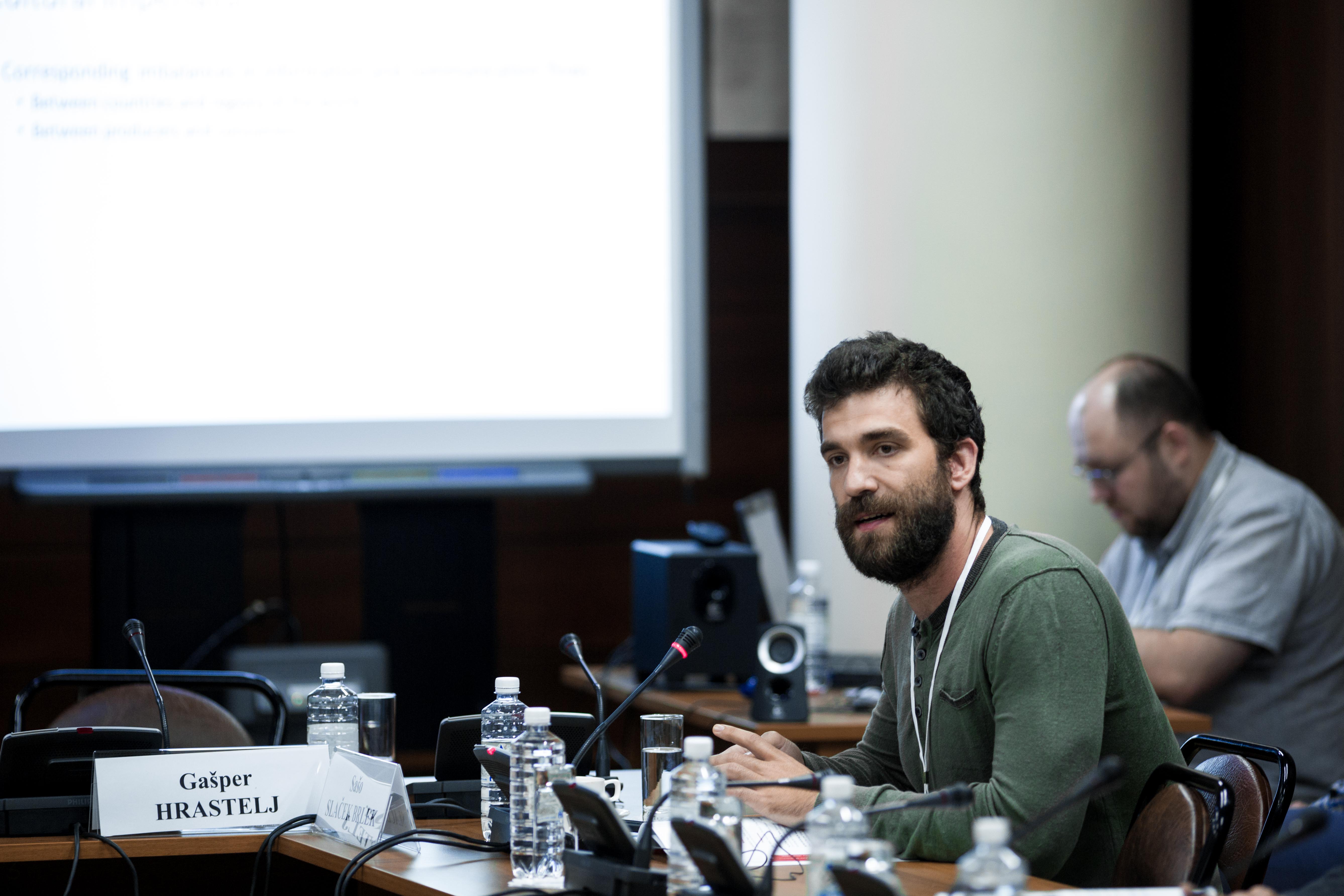 SLAČEK BRLEK Sašo, Researcher, Social Communication Research Centre, University of Ljubljana (Ljubljana, Slovenia)
ŞUPAC Inna, Chair of Parliamentary Faction, Party of Moldovan Communists (Chisinau, Republic of Moldova) and KOMAROVSKIS Ainars, Board Member, AK Risinajumi (Riga, Latvia)
SHARSHUN Victor, Deputy Director, National Centre for Legal Information of the Republic of Belarus (Minsk, Belarus)
BUNKOV Alexey, Adviser, Department of ICT Applications and E-democracy, Executive Office of the President of the Russian Federation; OPREDELYONOV Vladimir, Deputy Director for IT, Pushkin State Museum of Fine Arts; Head, Department of Information Technologies in Culture, National Research University Higher School of Economics; Presidium Member, Russian Committee of the International Council of Museums (ICOM) (Moscow, Russia)
SHARSHUN Vikor, TURAPOV Avazbek, Head, Digital Archives Department, “Uzarchive” Agency (Tashkent, Uzbekistan), ZAITSEV Andrei, Deputy Engineering Manager, Boris Yeltsin Presidential Library (Saint Petersburg, Russia)
OPREDELYONOV Vladimir
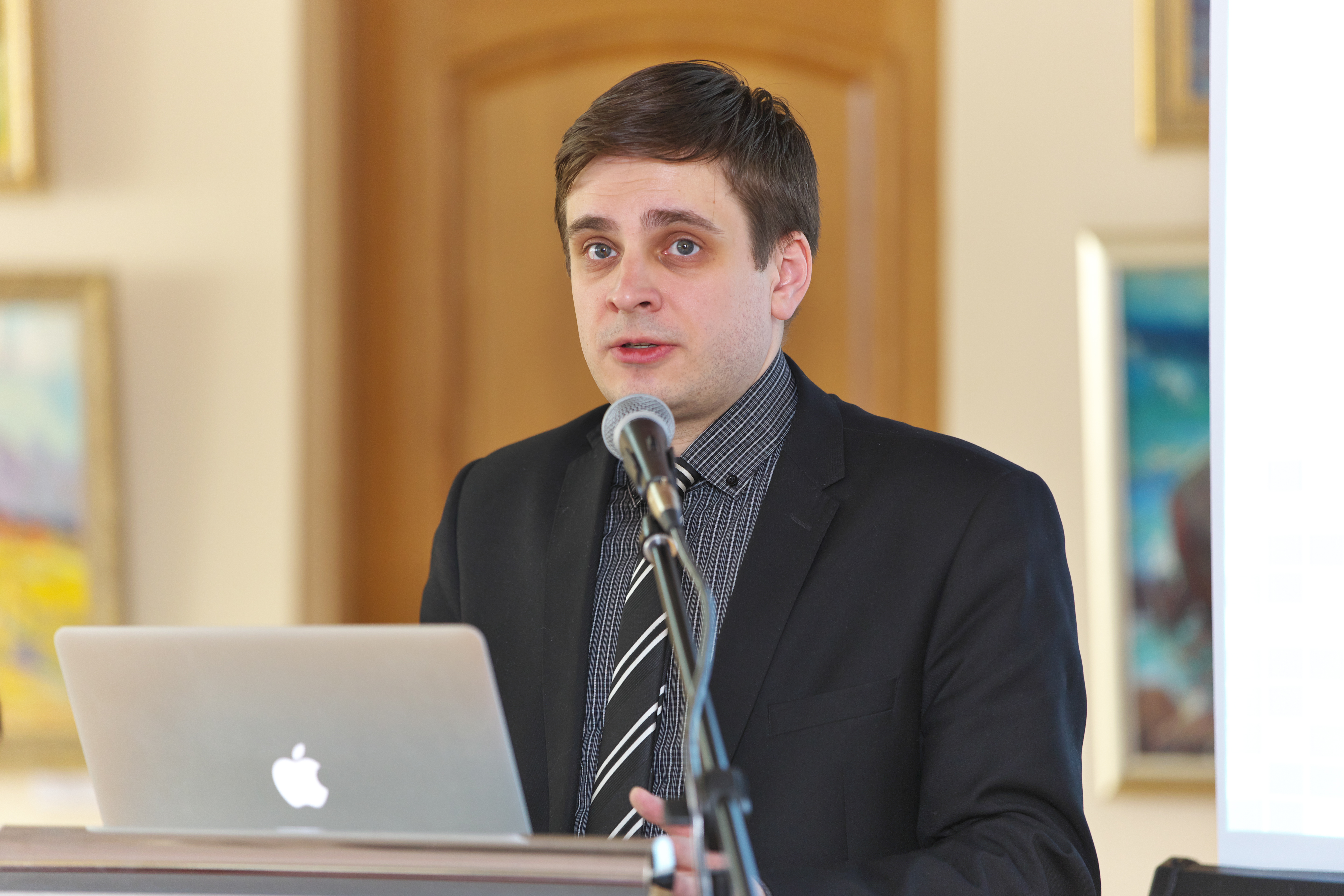 ZAITSEV Andrei
SARAVETDINOV Rifat, General Director of the publishing group "GRAND-FAIR" (Moscow, Russia)
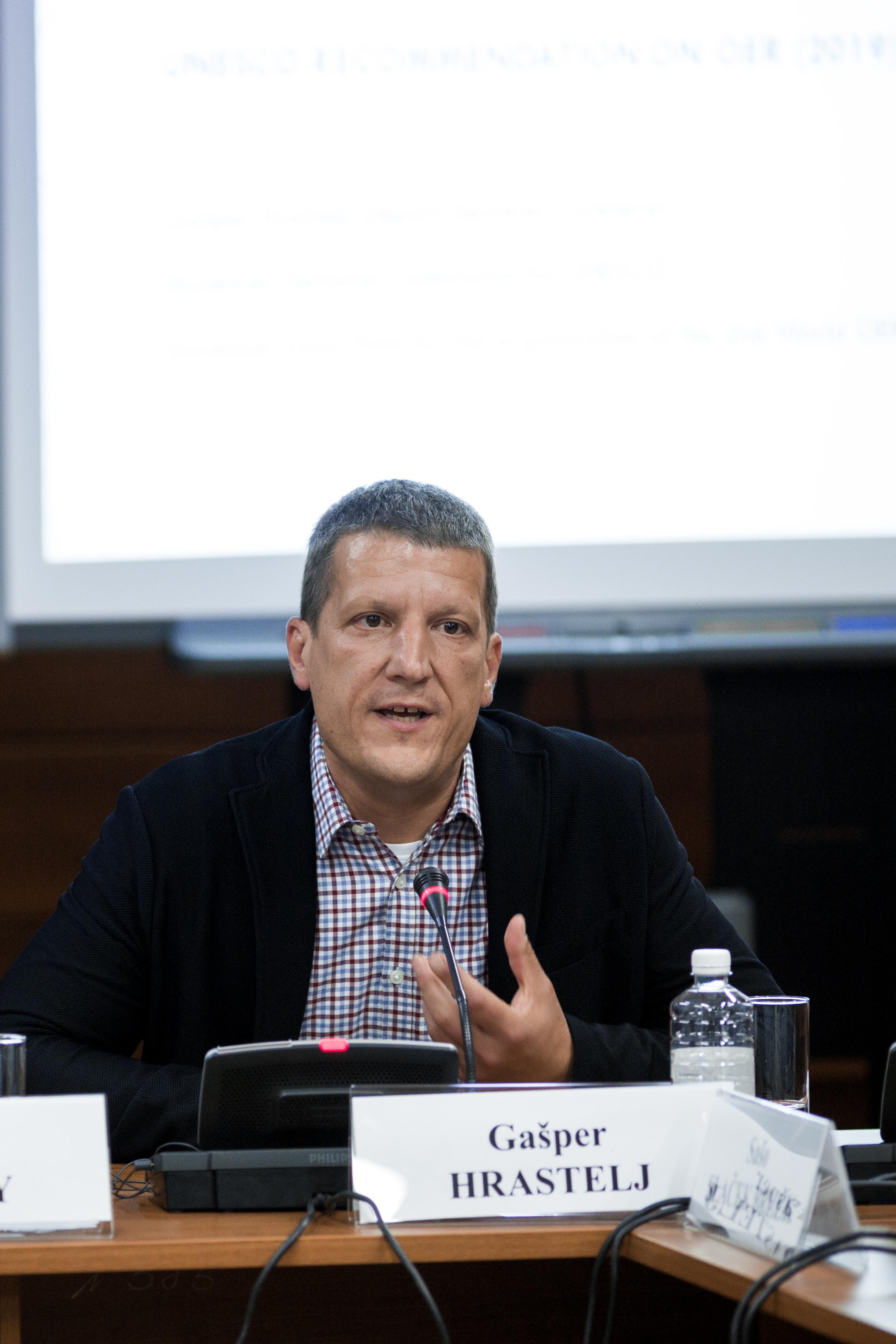 HRASTELJ Gašper, Deputy Secretary General, Slovenian National Commission for UNESCO (Ljubljana, Slovenia)
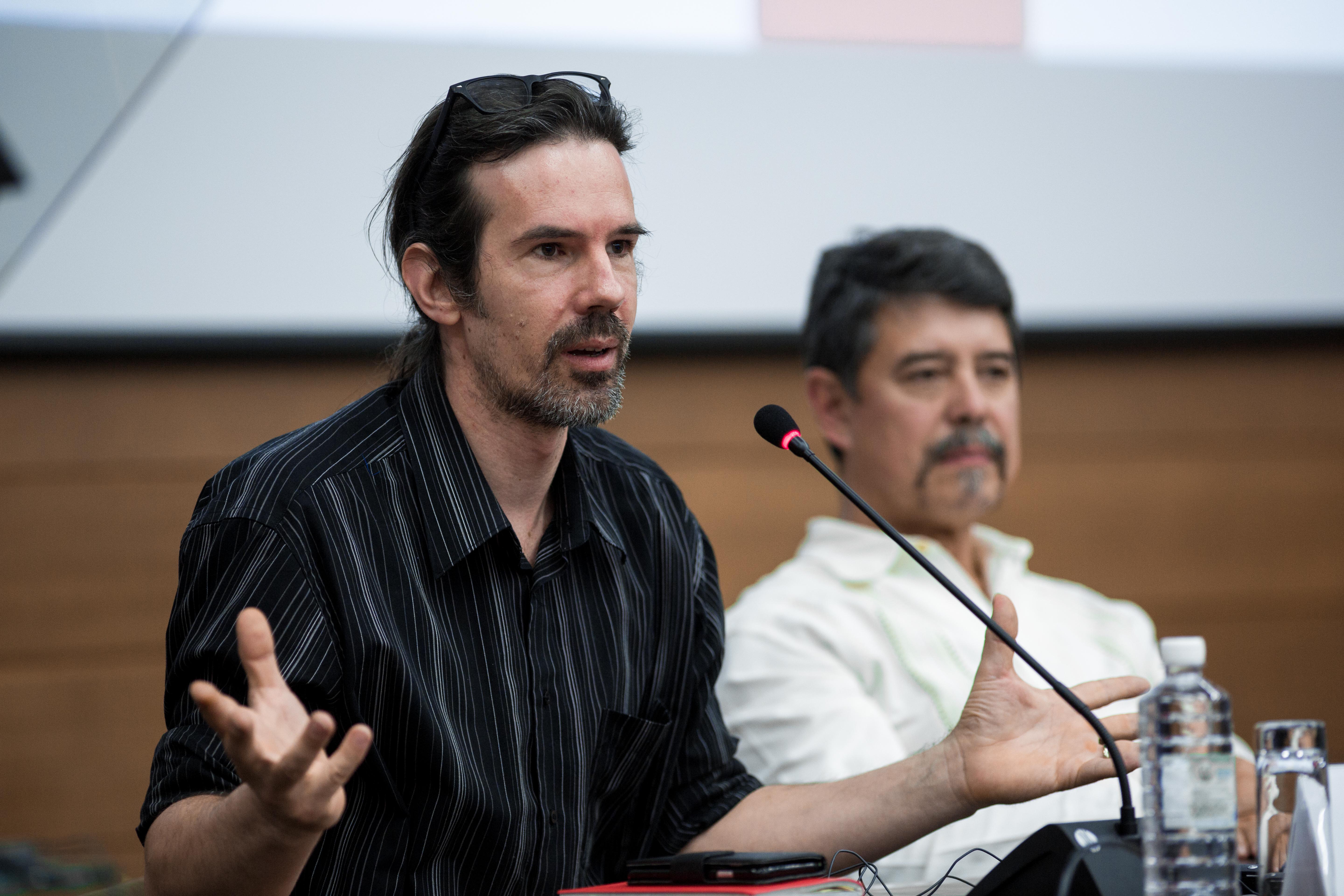 RIVRON Vassili, Lecturer, University of Caen Normandy (Caen, France) SHARSHUN Viktor (Minsk, Belarus); SARGSYAN Lusine, Third Secretary, Department of Press, Information and Public Relations, Ministry of Foreign Affairs (Yerevan, Armenia)
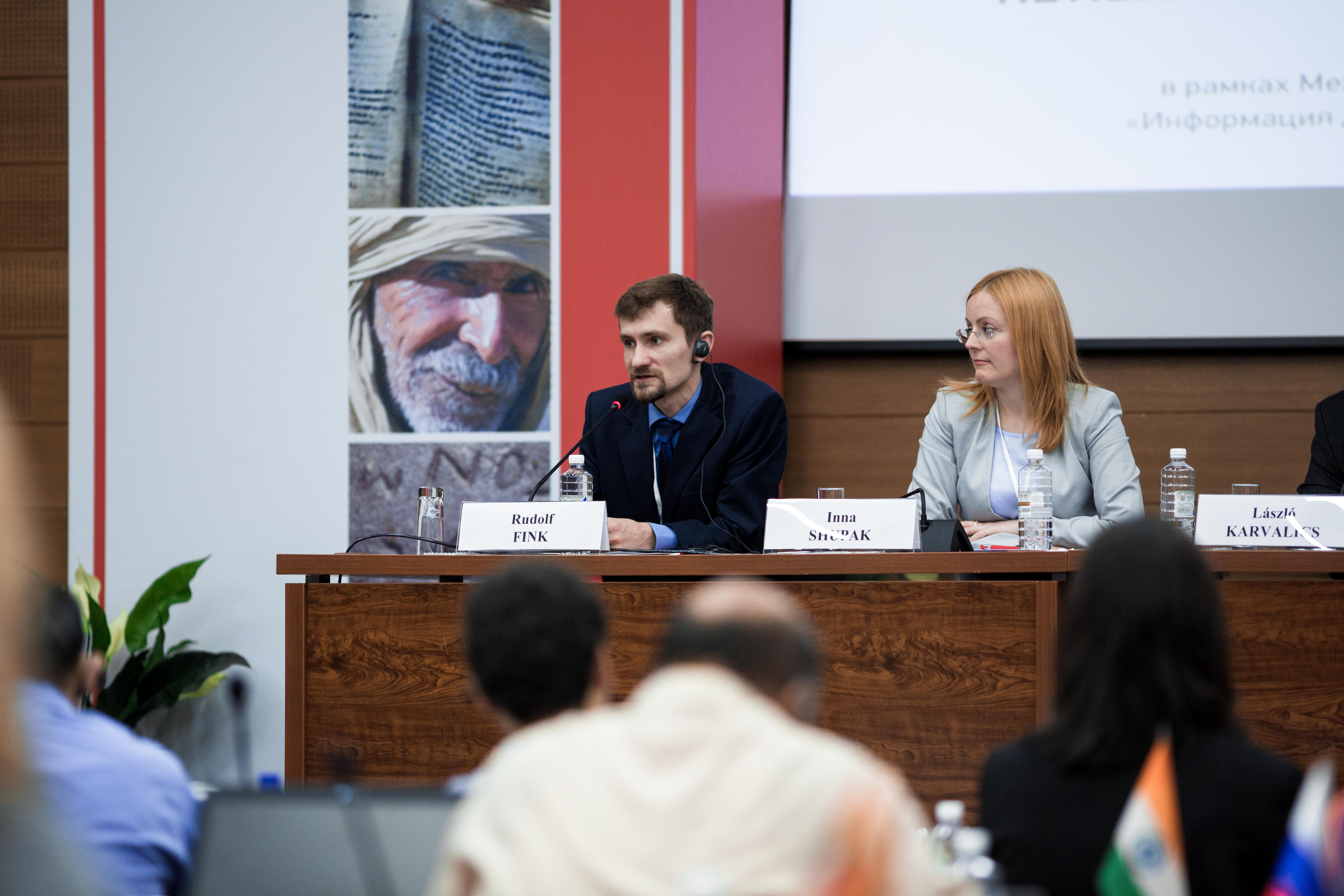 FINK Rudolf, Associate Professor, Department of Journalism, Ugra State University (Khanty-Mansiysk, Russia), ŞUPAC Inna (Chisinau, Republic of Moldova)
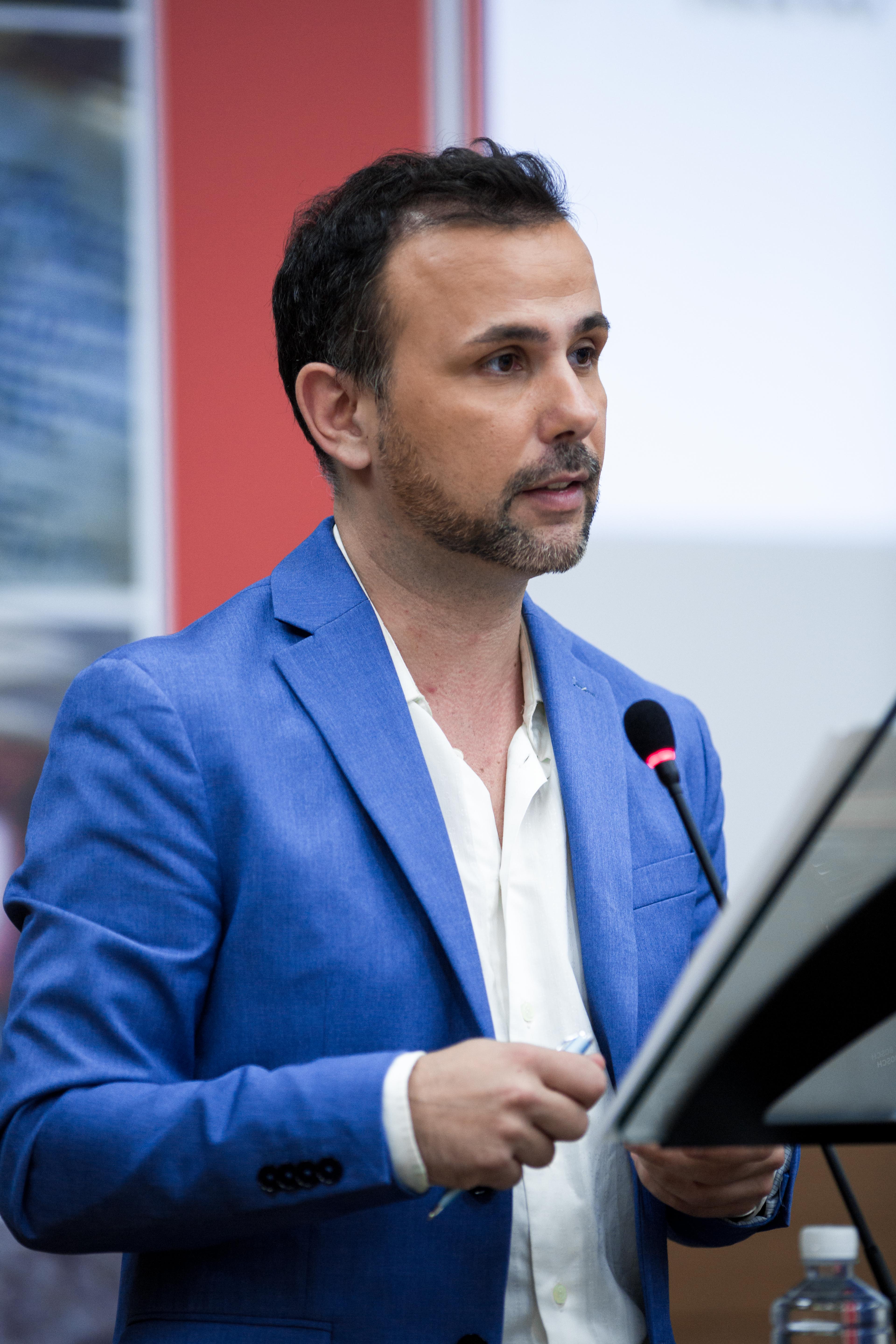 CLIMENT-FERRANDO Vicente, Research Advisor, Pompeu Fabra University (Barcelona, Spain)
 WALKOSZ Barbara, Senior Scientist, Klein Buendel (Golden, USA)
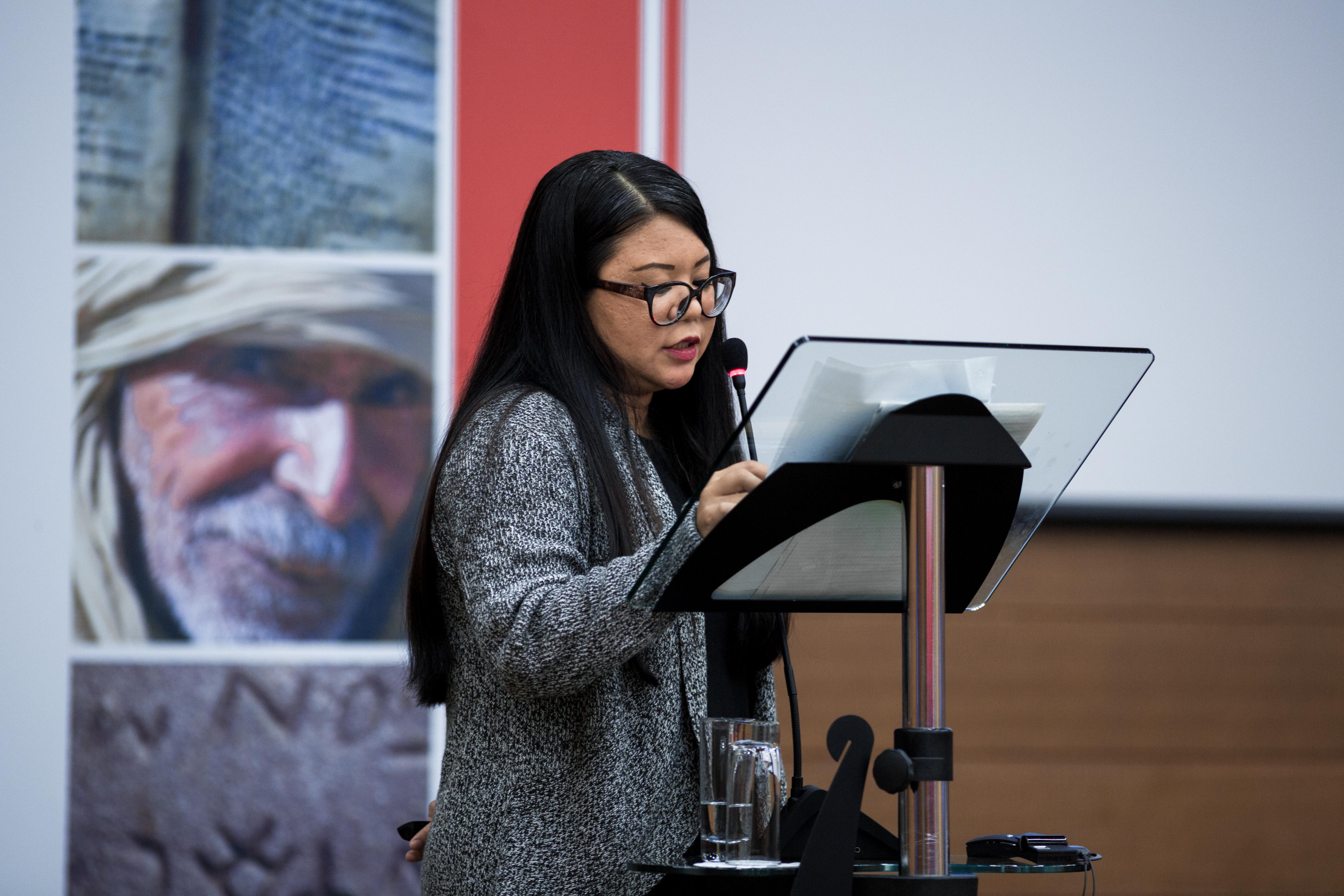 SAN DIEGO Therese Patricia Cruz, Programme Officer, Asian Institute of Journalism and Communication (Quezon City, Philippines)
TANAKA Katsuko Nakahira, Assistant Professor, Nagaoka University of Technology (Nagaoka, Japan)
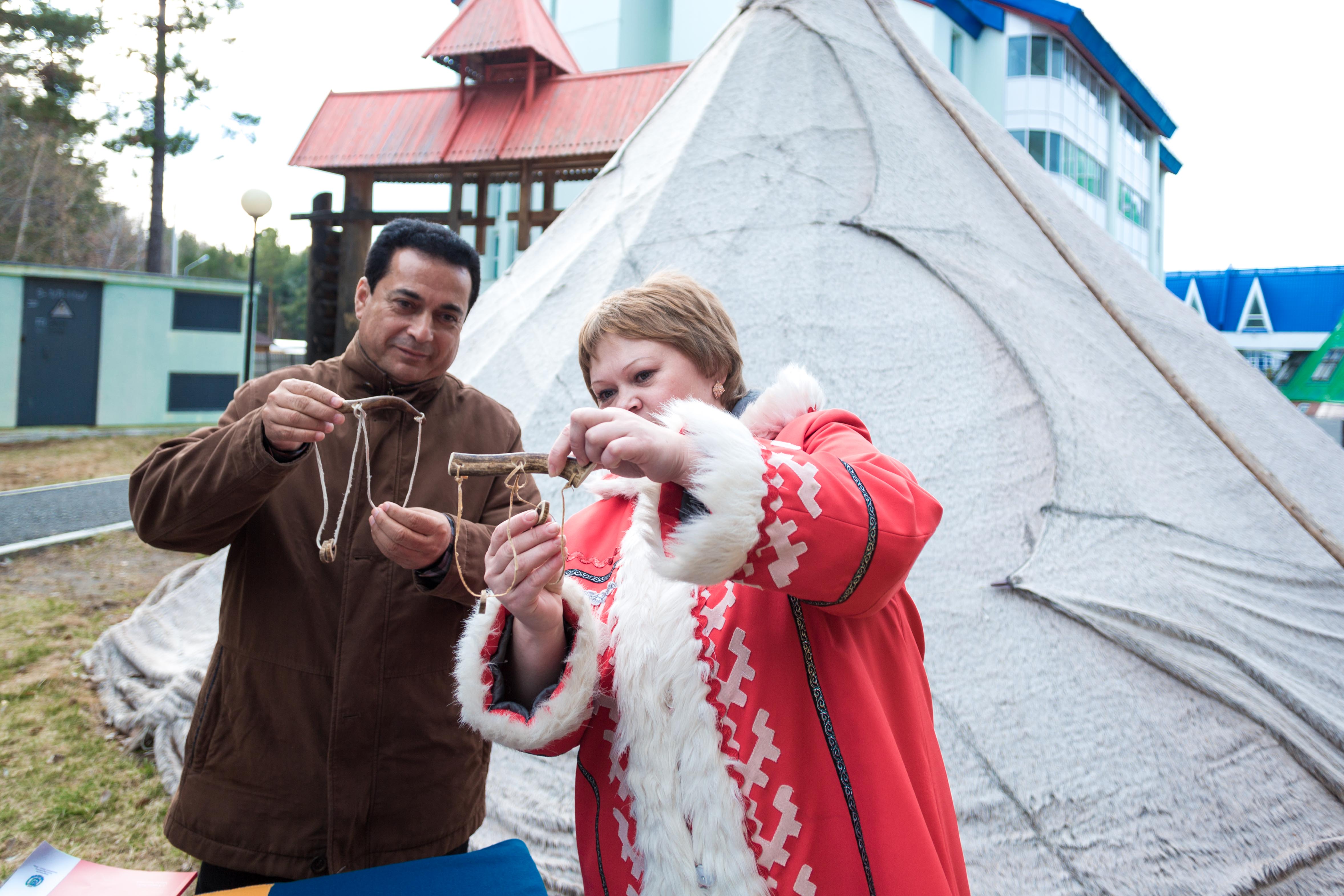 Al RAHHAL Radwan, Director of Vocational and Technical Education, First Inspector of Russian Language, Ministry of Education of Syrian Arab Republic (Damascus, Syria)
BORISENKO Albina, Assistant Director, Interregional Library Cooperation Centre; Project Ñoordinator, Russian Committee of the UNESCO Information for All Programme (Naro-Fominsk, Russia), ZAKARADZE Ekaterina and TSATSANASHVILI Mariam (Tbilisi, Georgia), IVINA Karina, Assistant to the Rector, State University of Management (Moscow, Russia)
KUZMIN Evgeny. BEZNOSOVA Irina, ZABOZLAEV Alexei, Deputy Governor of the Khanty-Mansi Autonomous Okrug – Ugra
KAZNACHEEVA Nadezhda, Director of the Department of Culture of the Khanty-Mansiysk Autonomous Okrug - Ugra, BAKEYKIN Sergey, Executive Director, Interregional Library Cooperation Centre; Deputy Chair, Russian Committee of the UNESCO Information for All Programme; Vice-Chair, Russian Library Association (Moscow, Russia)
TANAKA Katsuko (Nagaoka, Japan), ROSERO HERRERA Ana Victoria, Deputy Delegate of Ecuador to UNESCO (Riobamba, Ecuador)
Participants of the conference during the cultural program |
|||
© 2006 Russian Committee of UNESCO "Information for All" program |
|
|||||